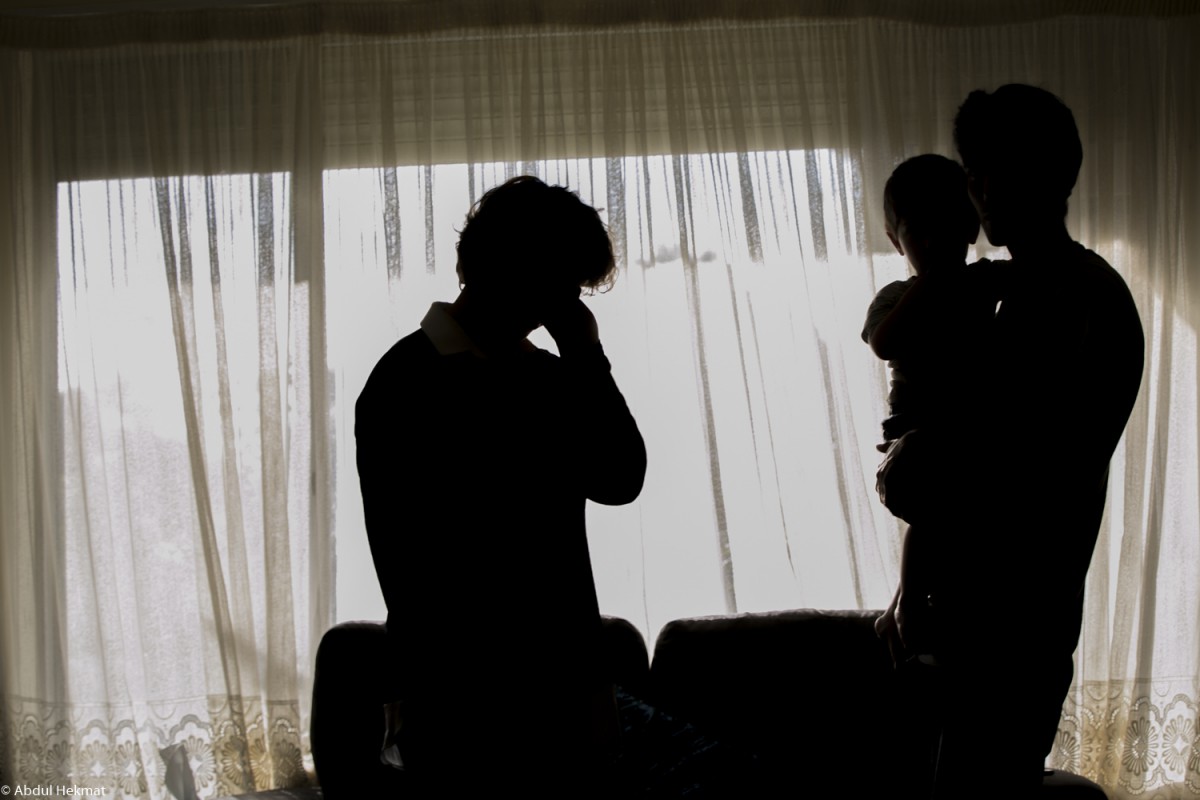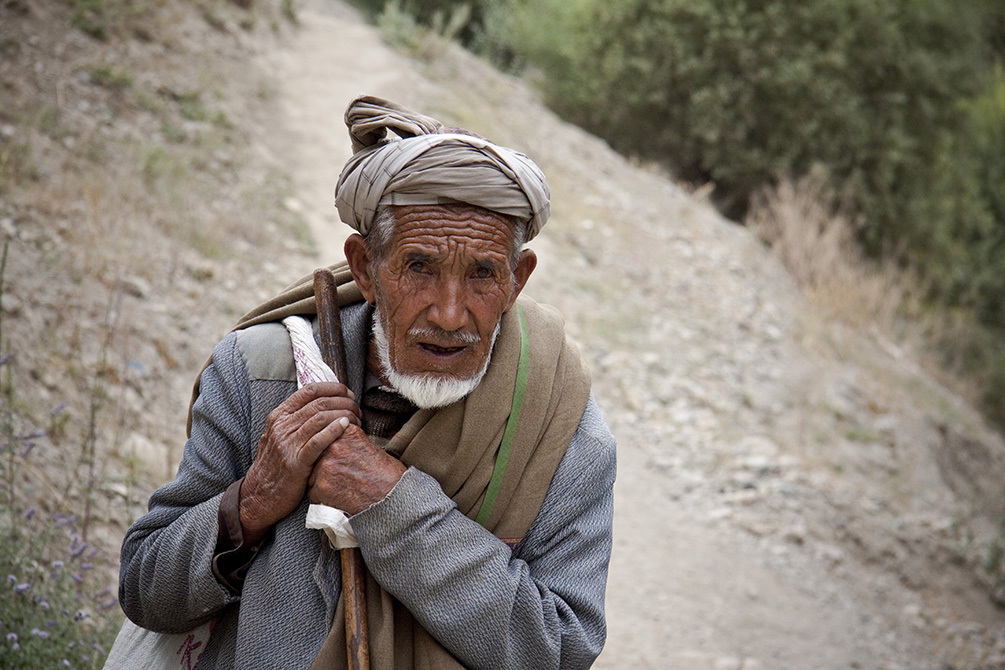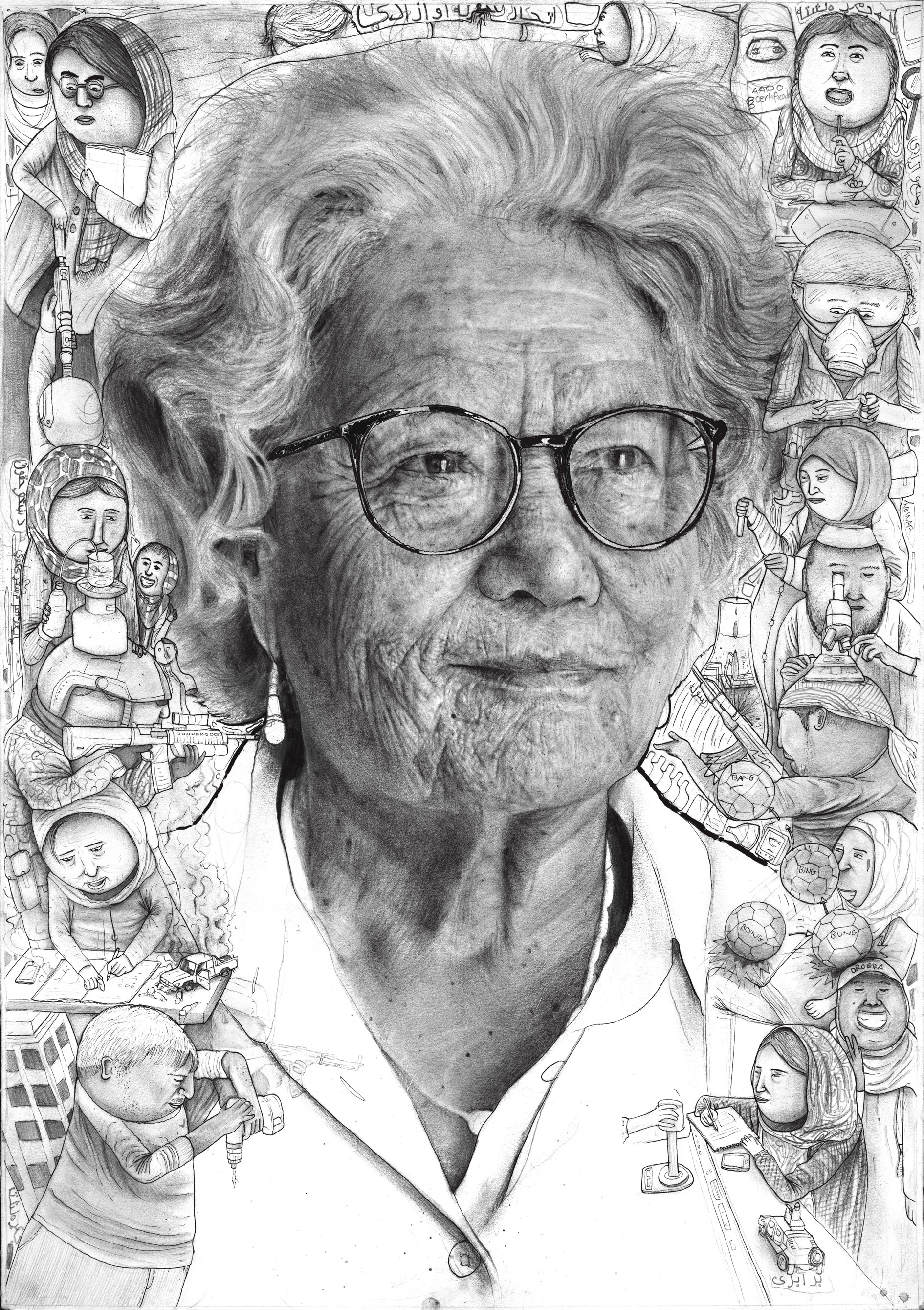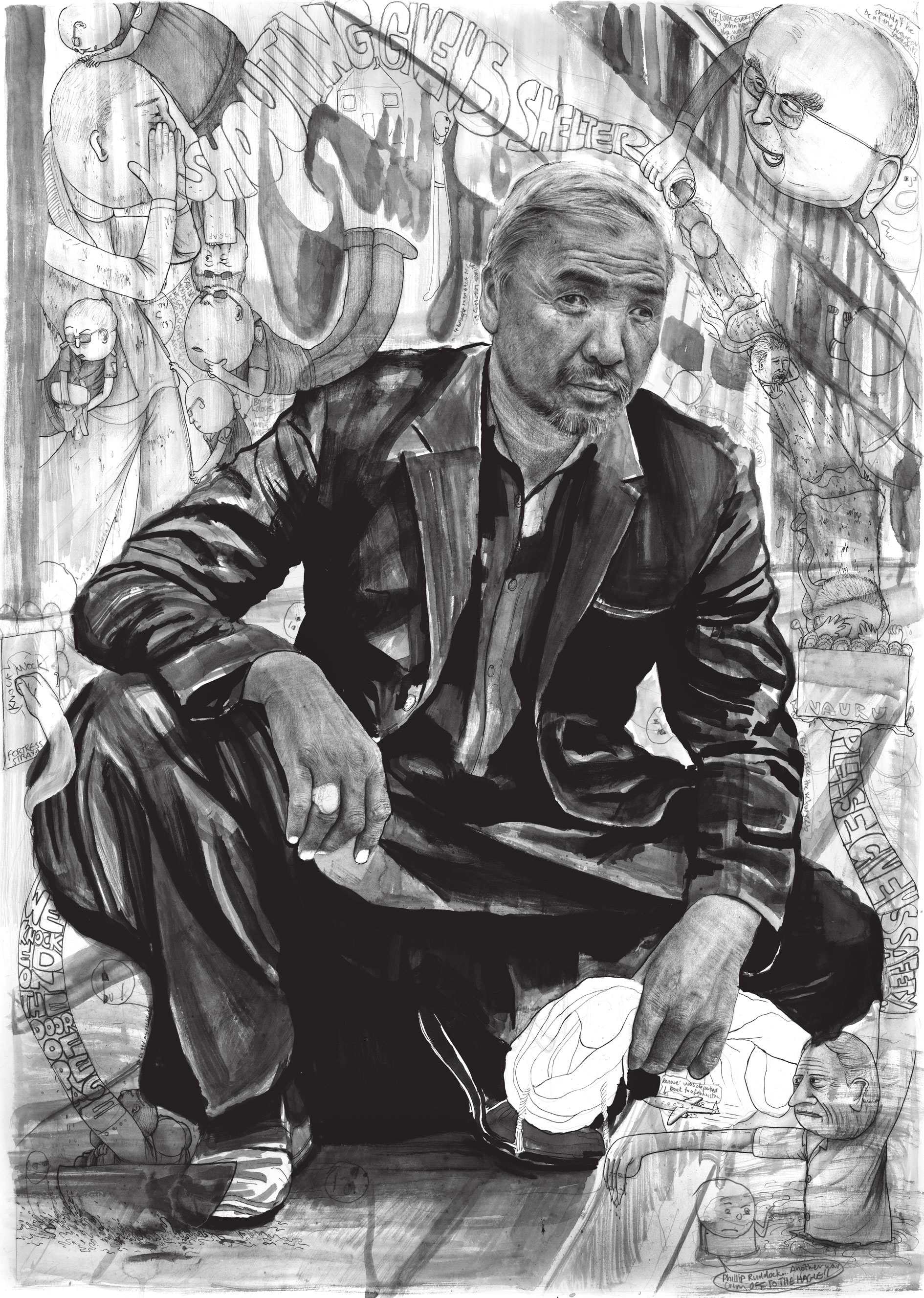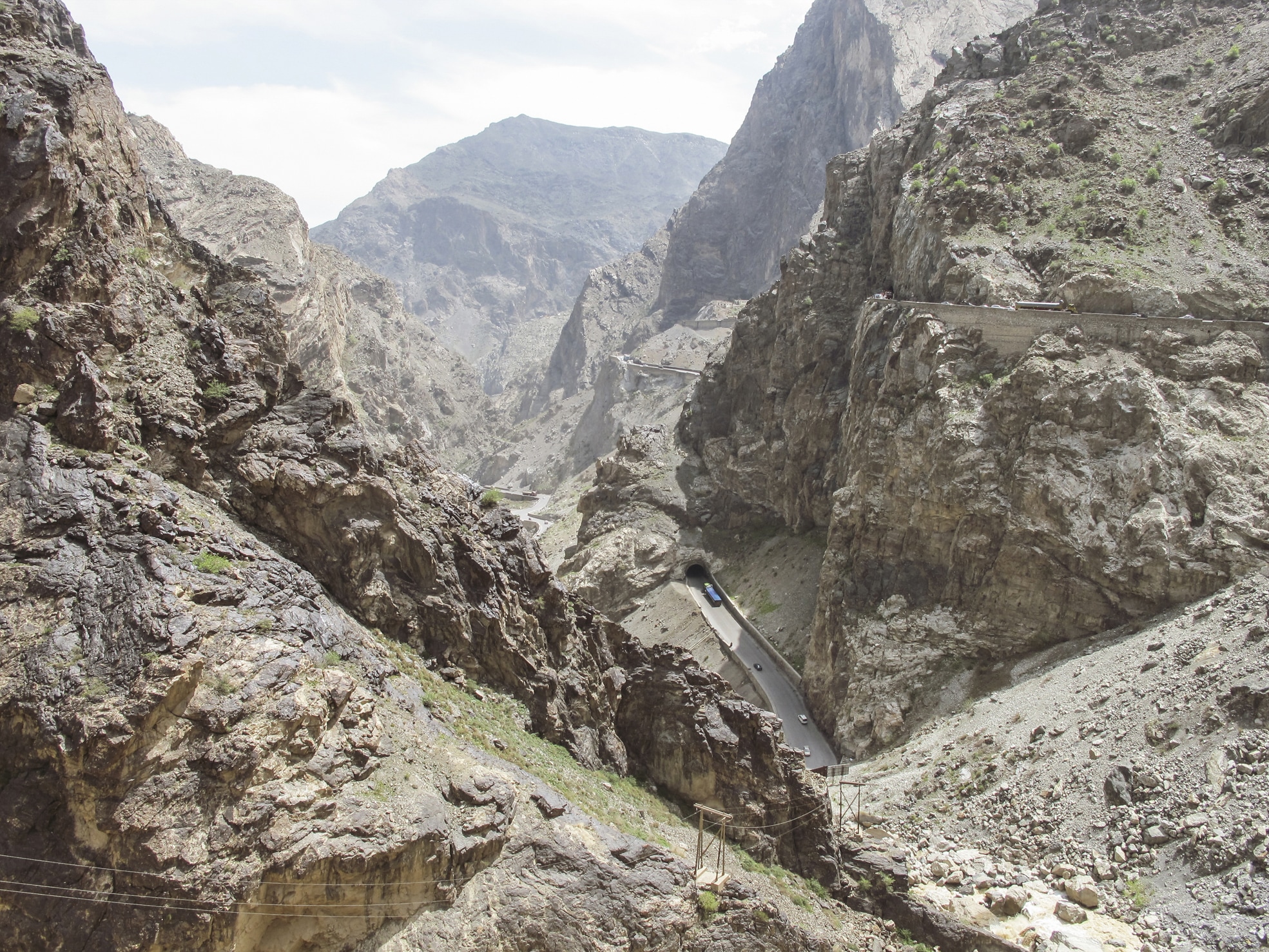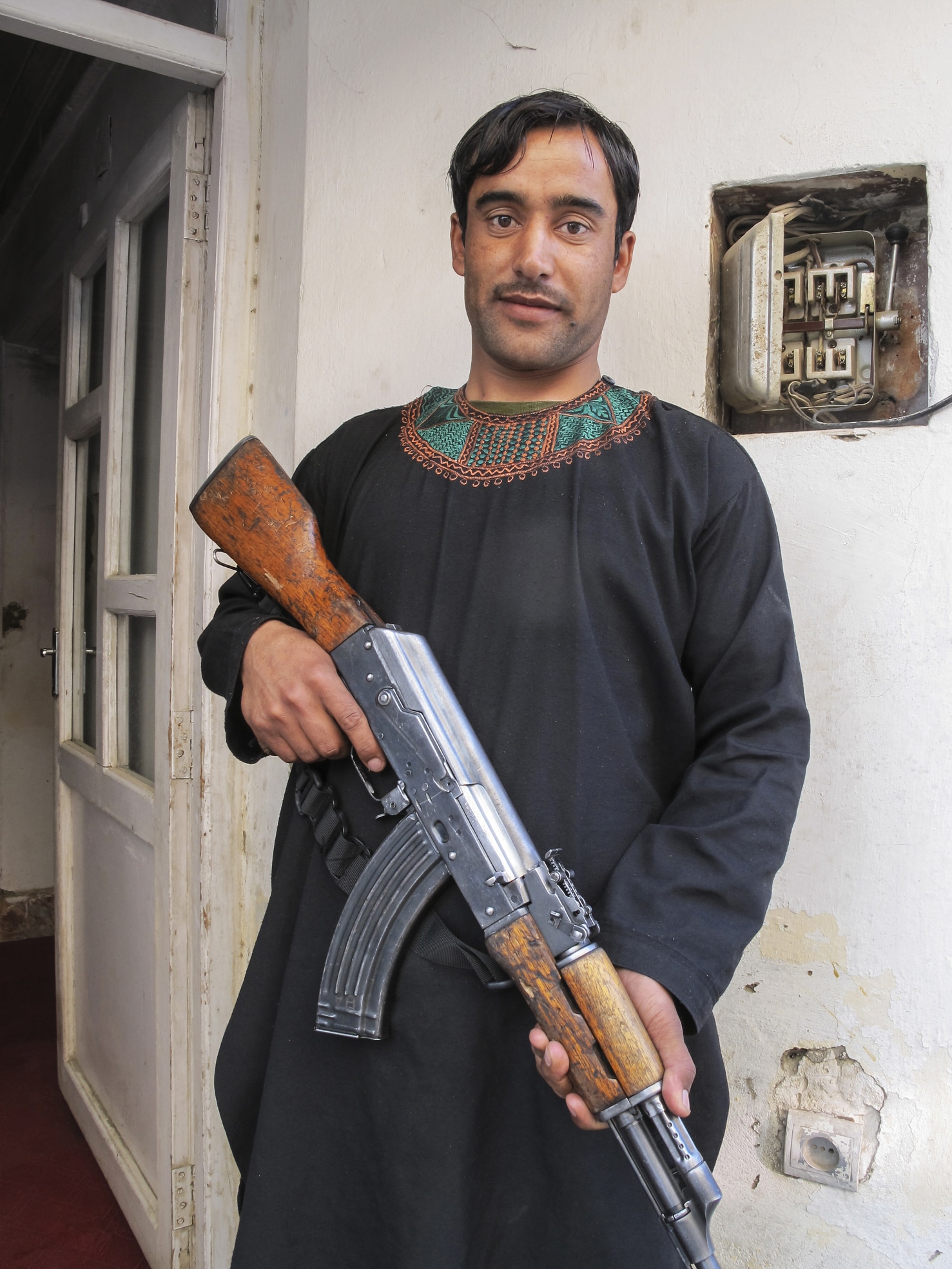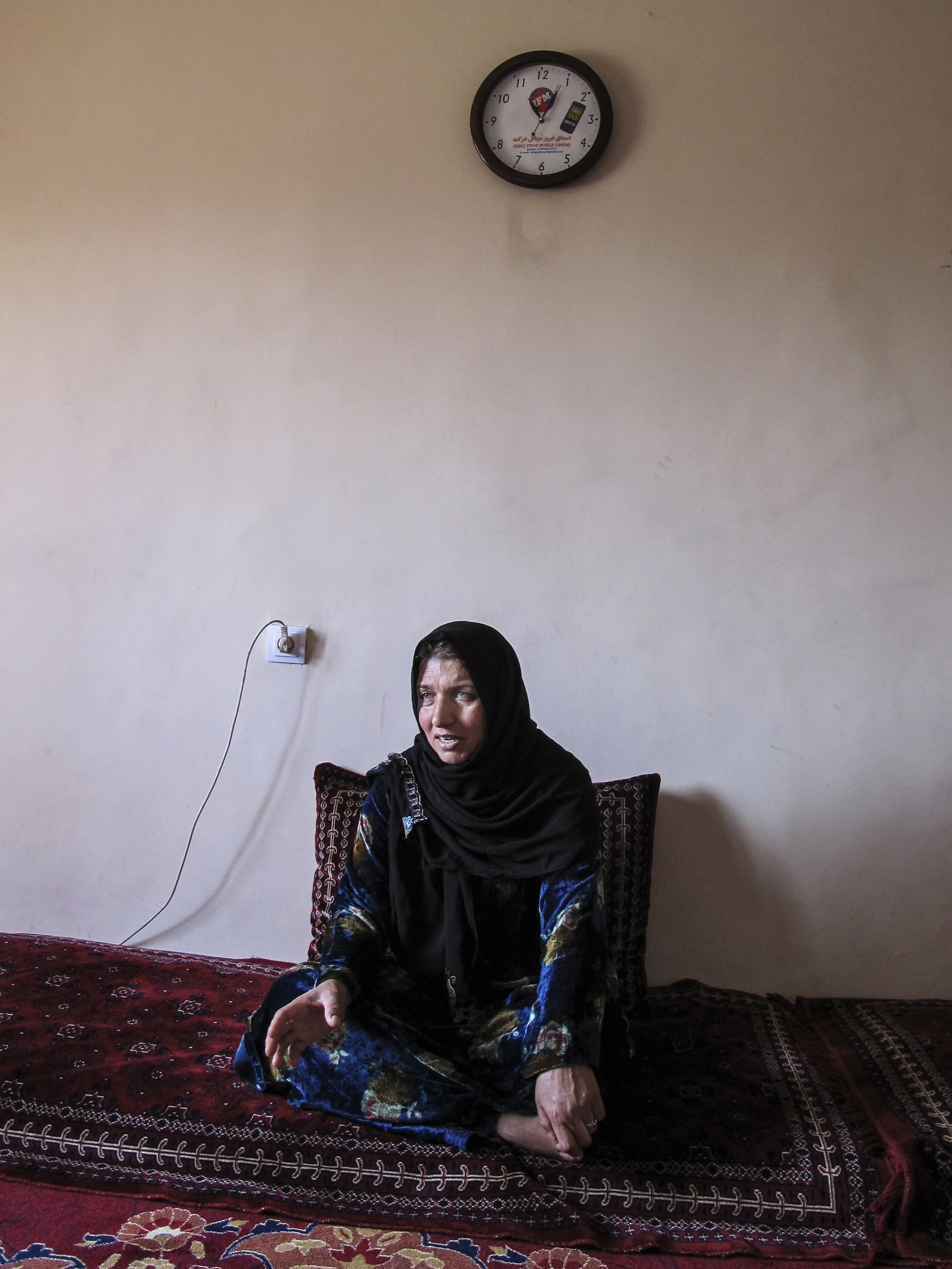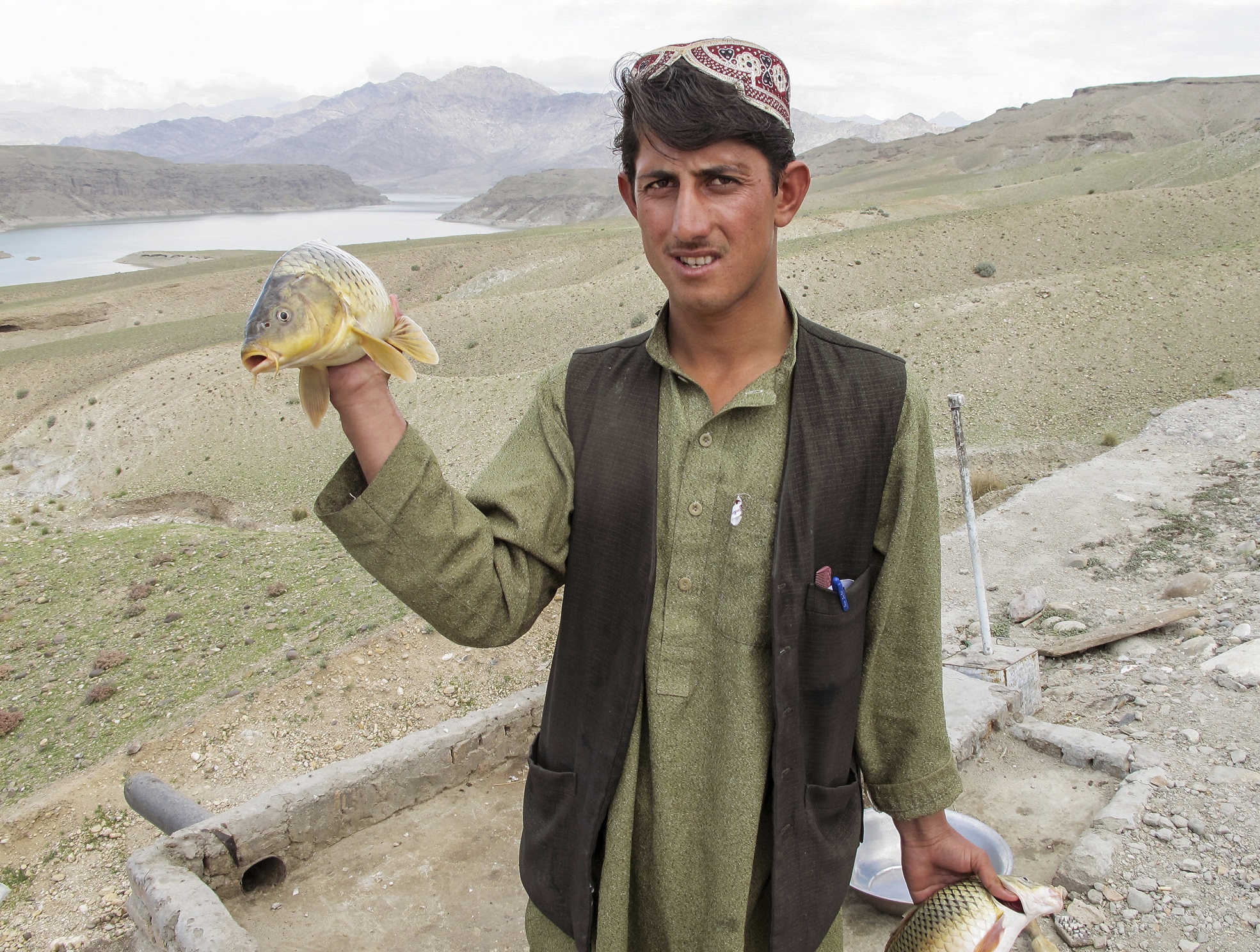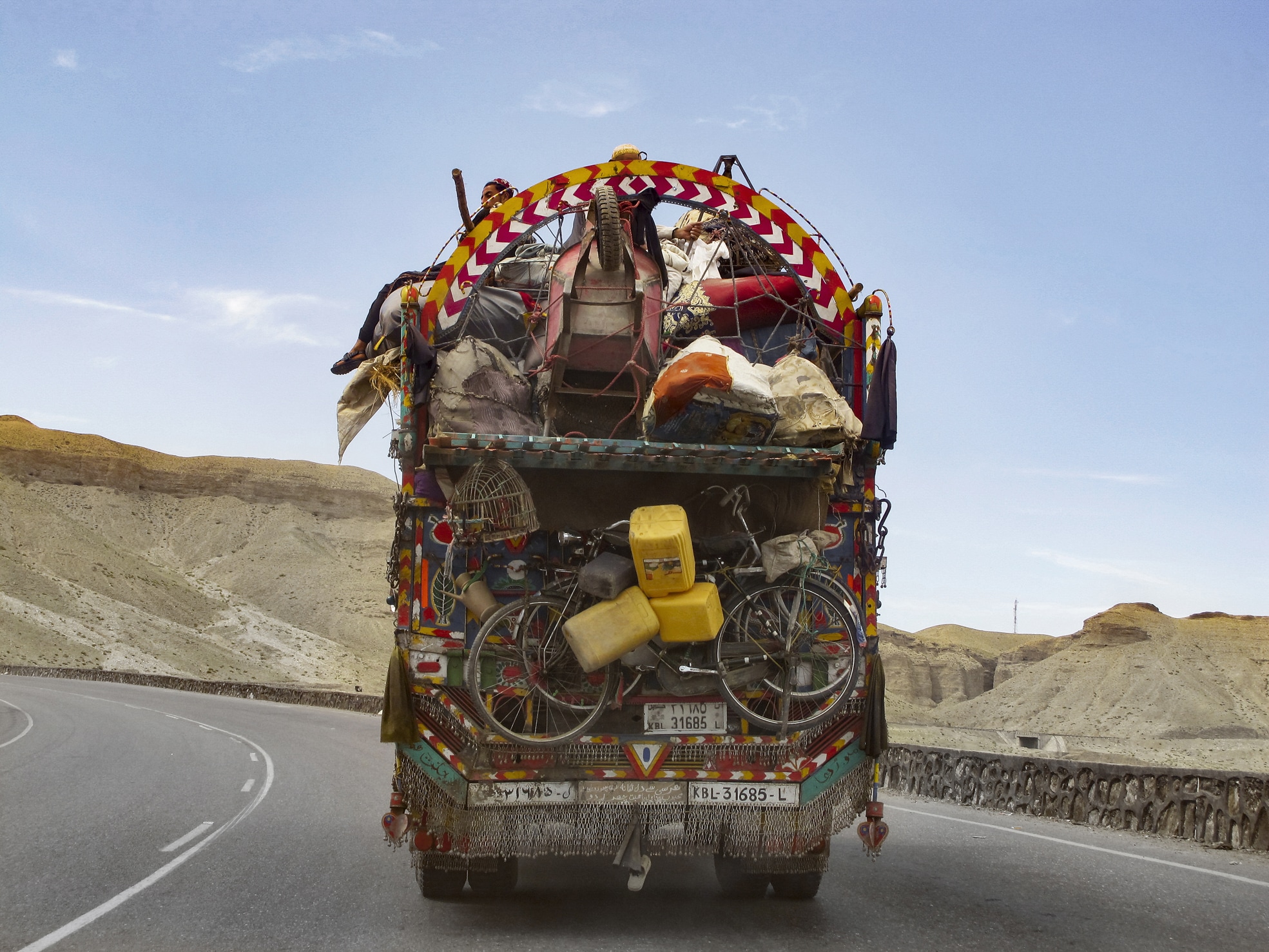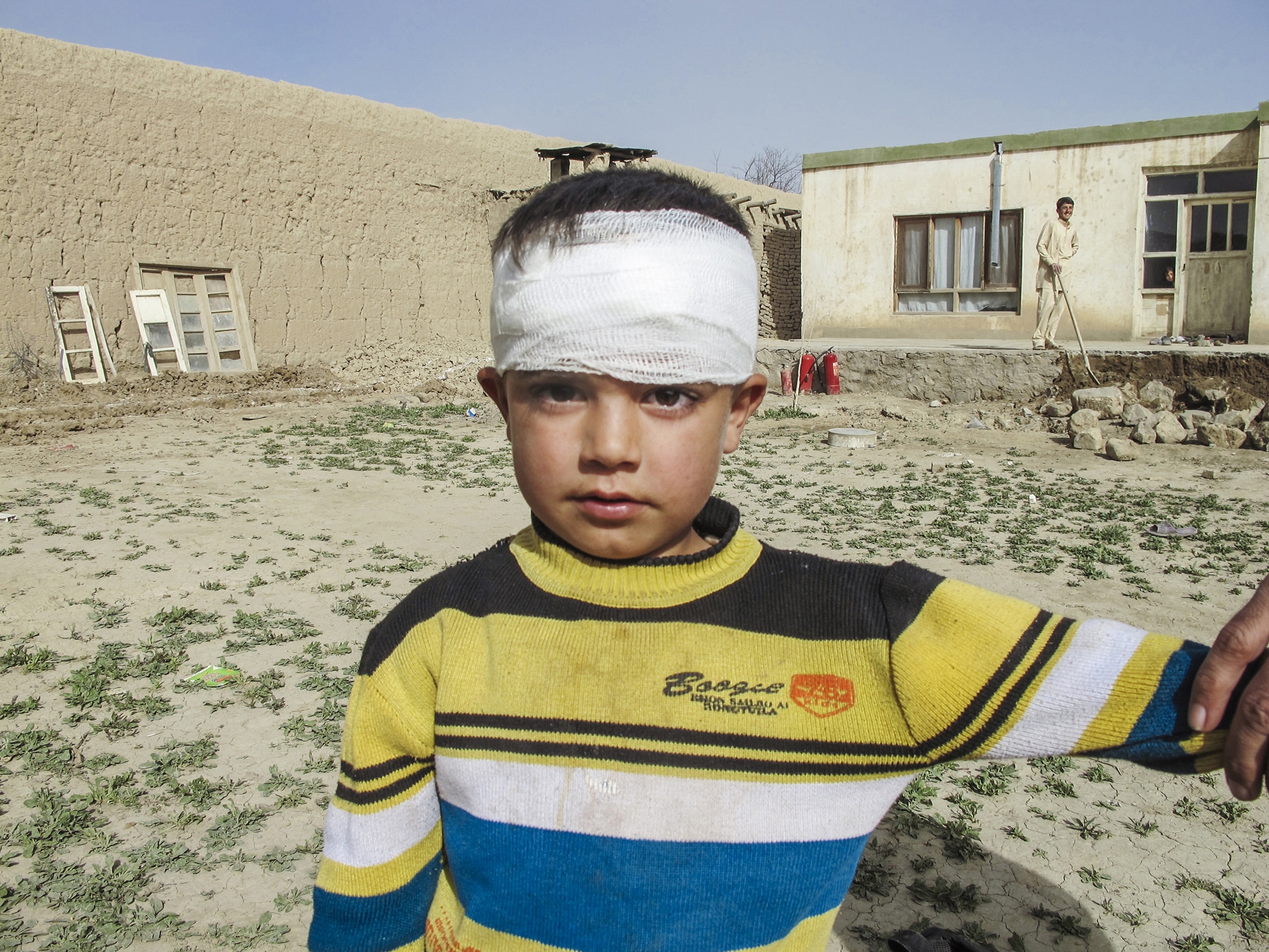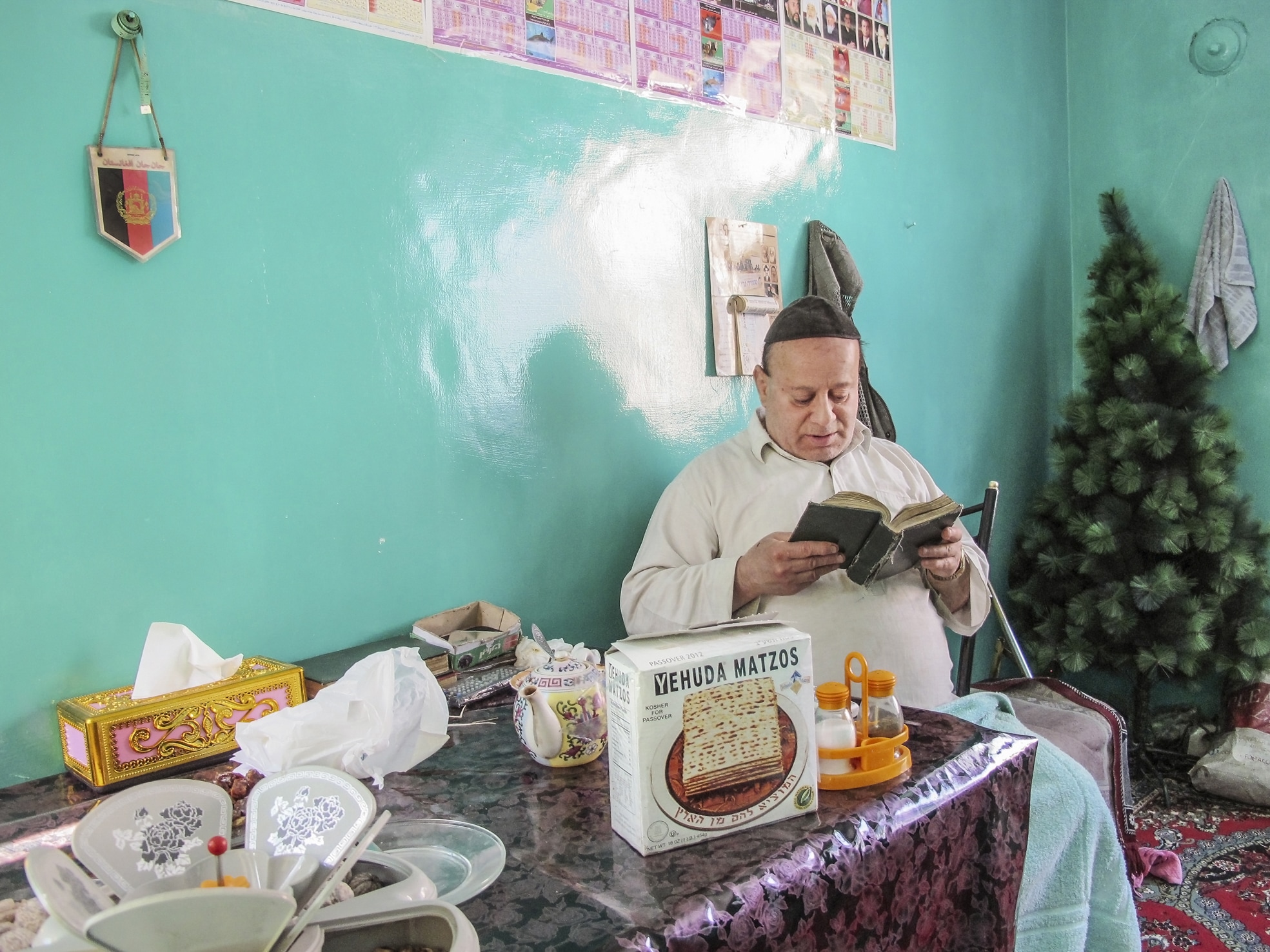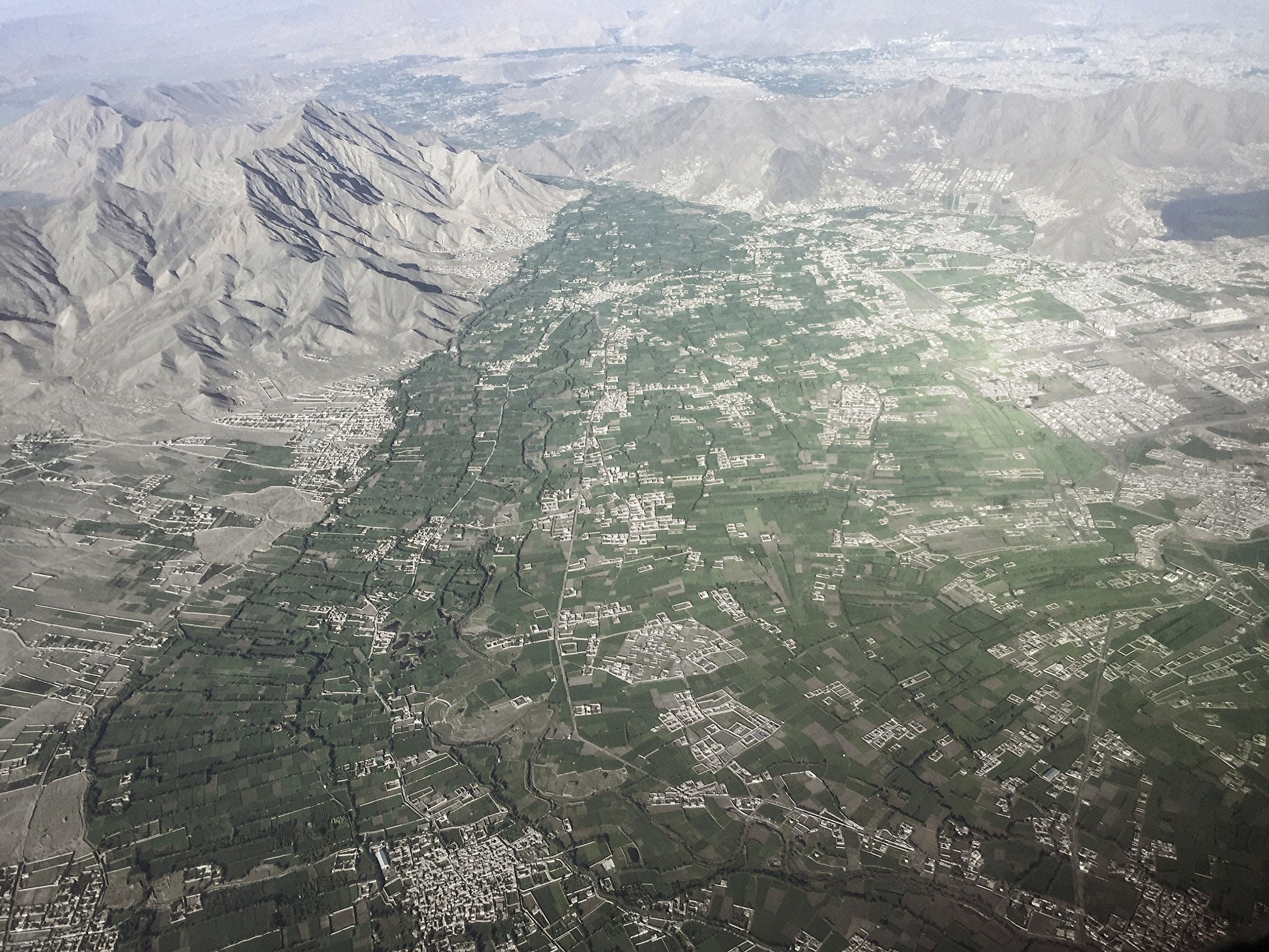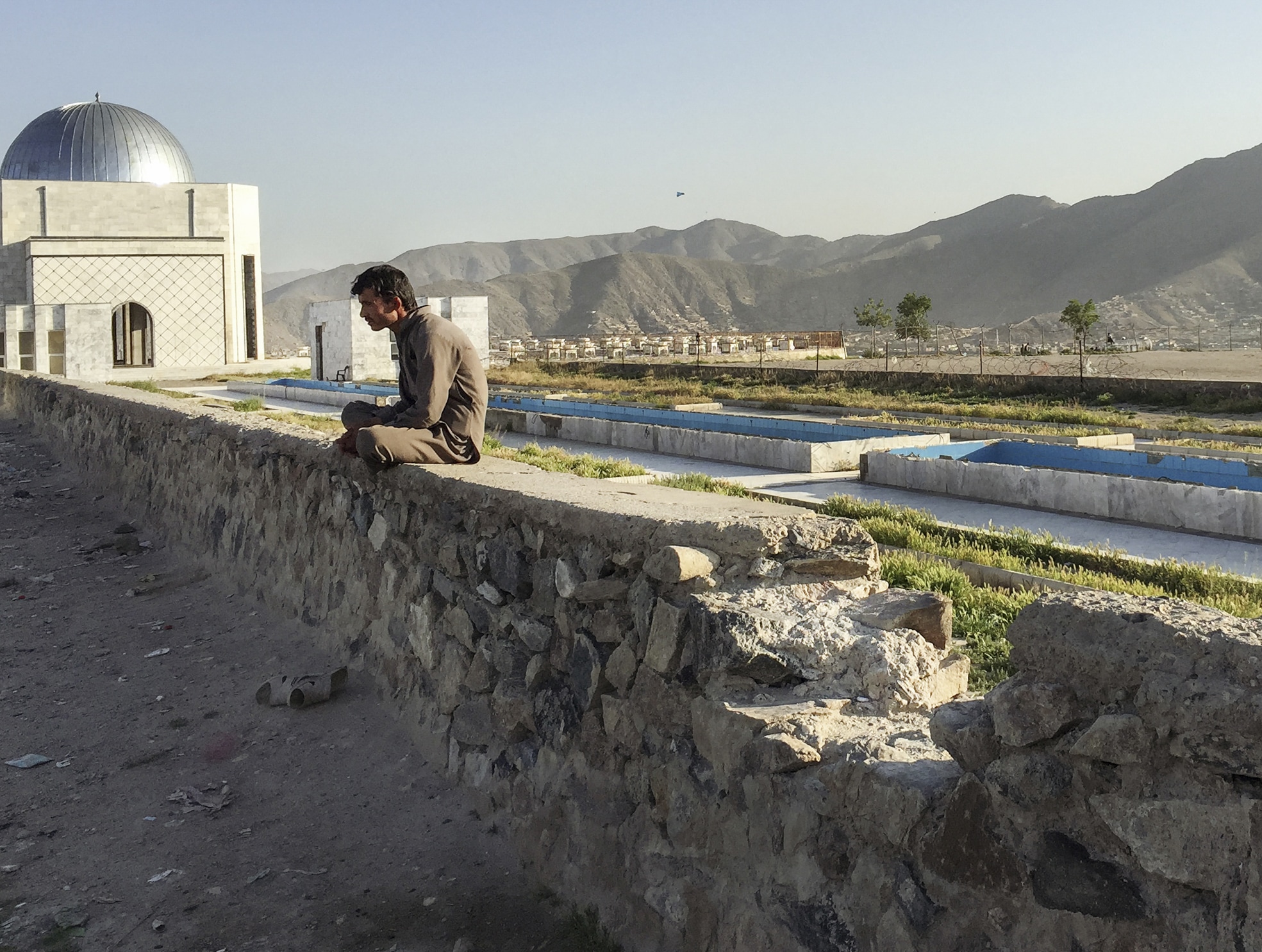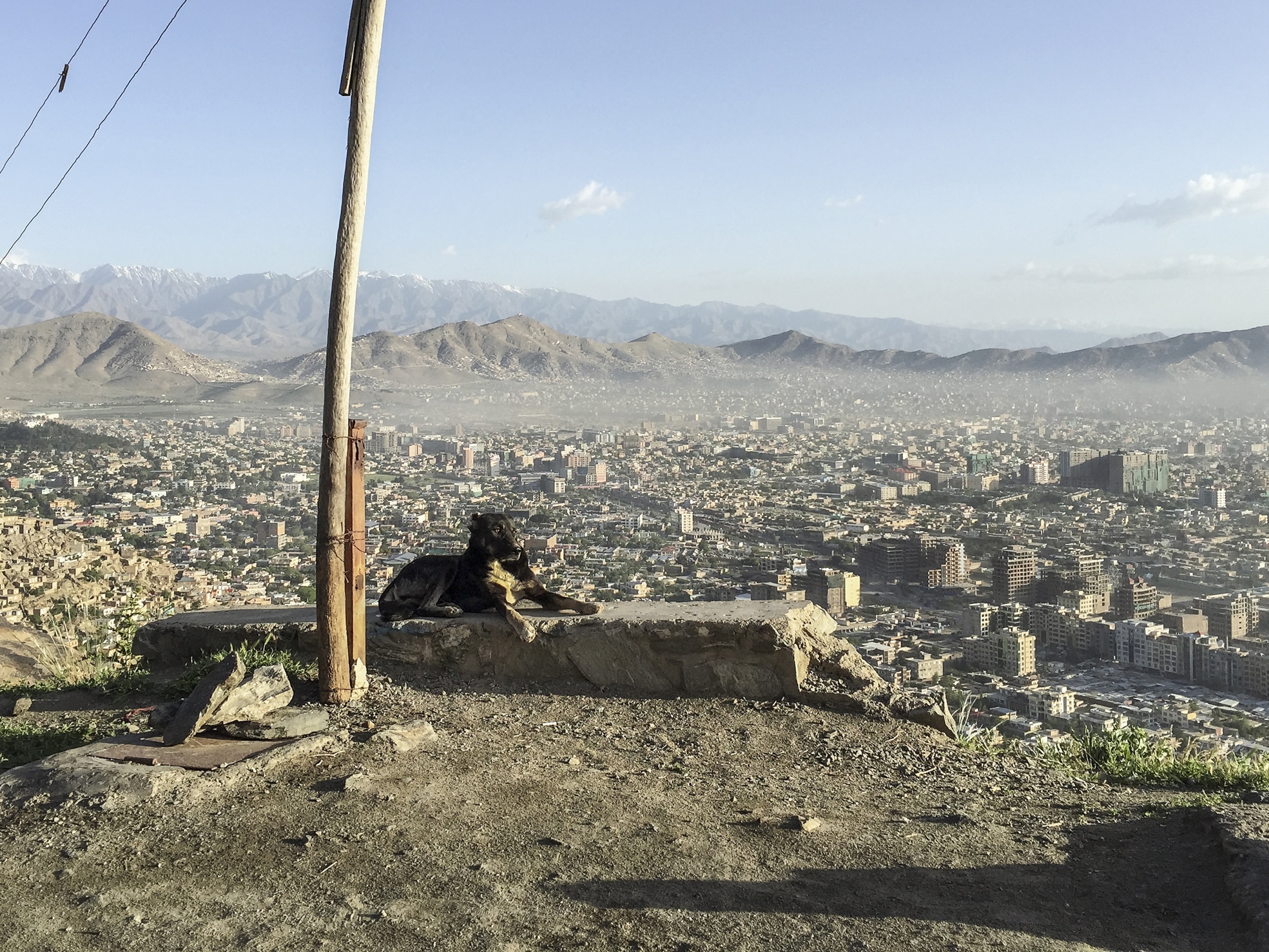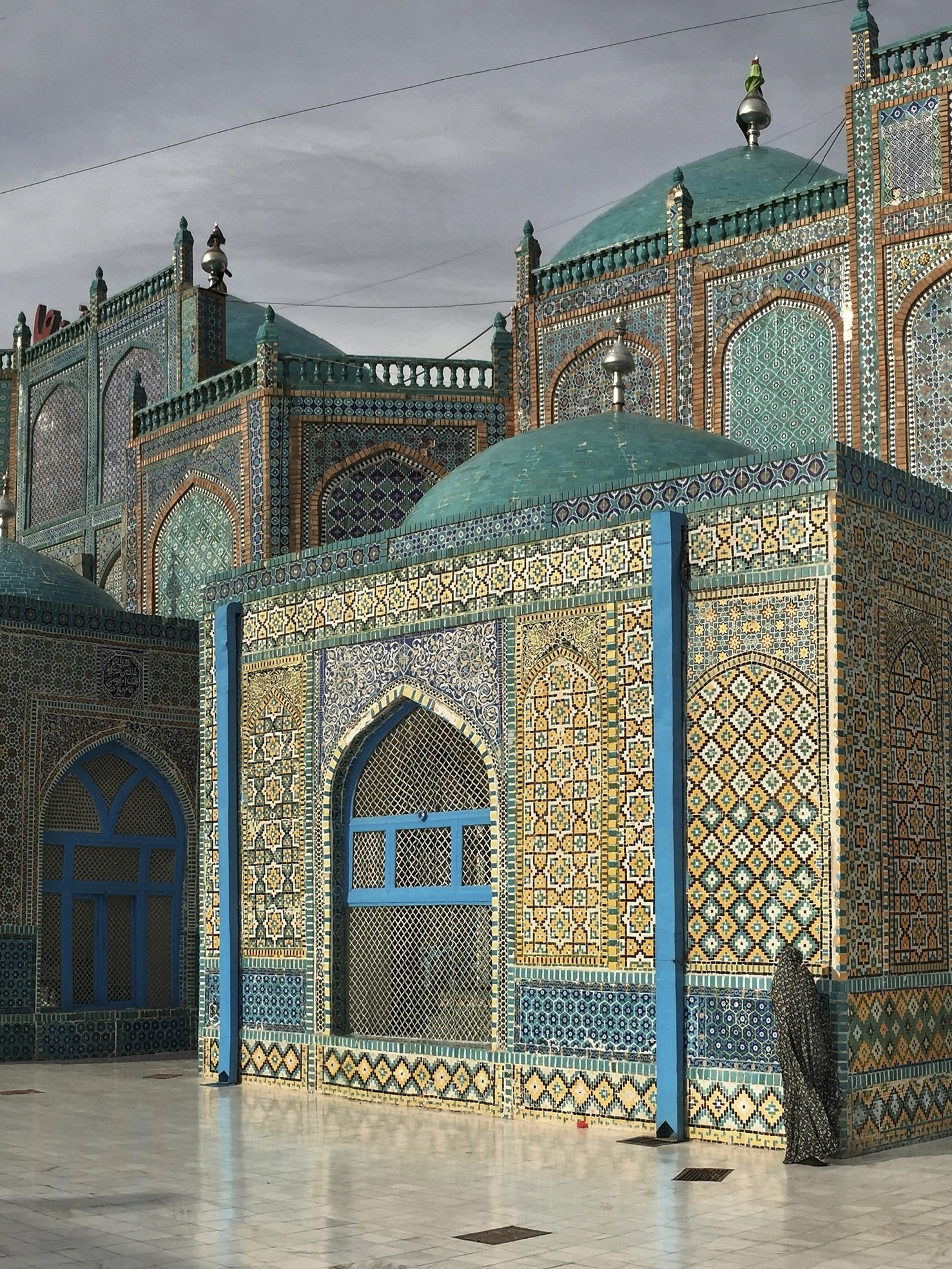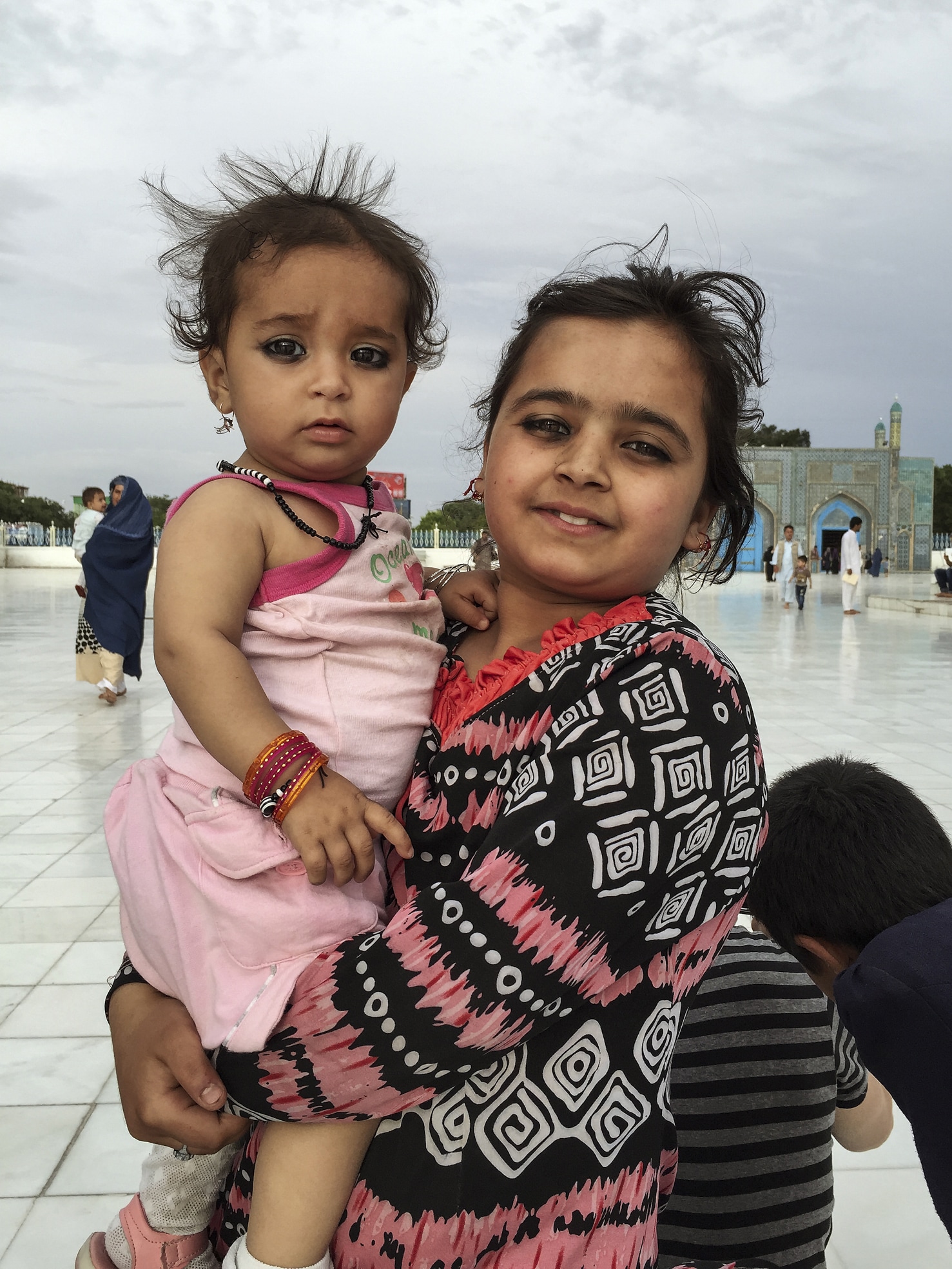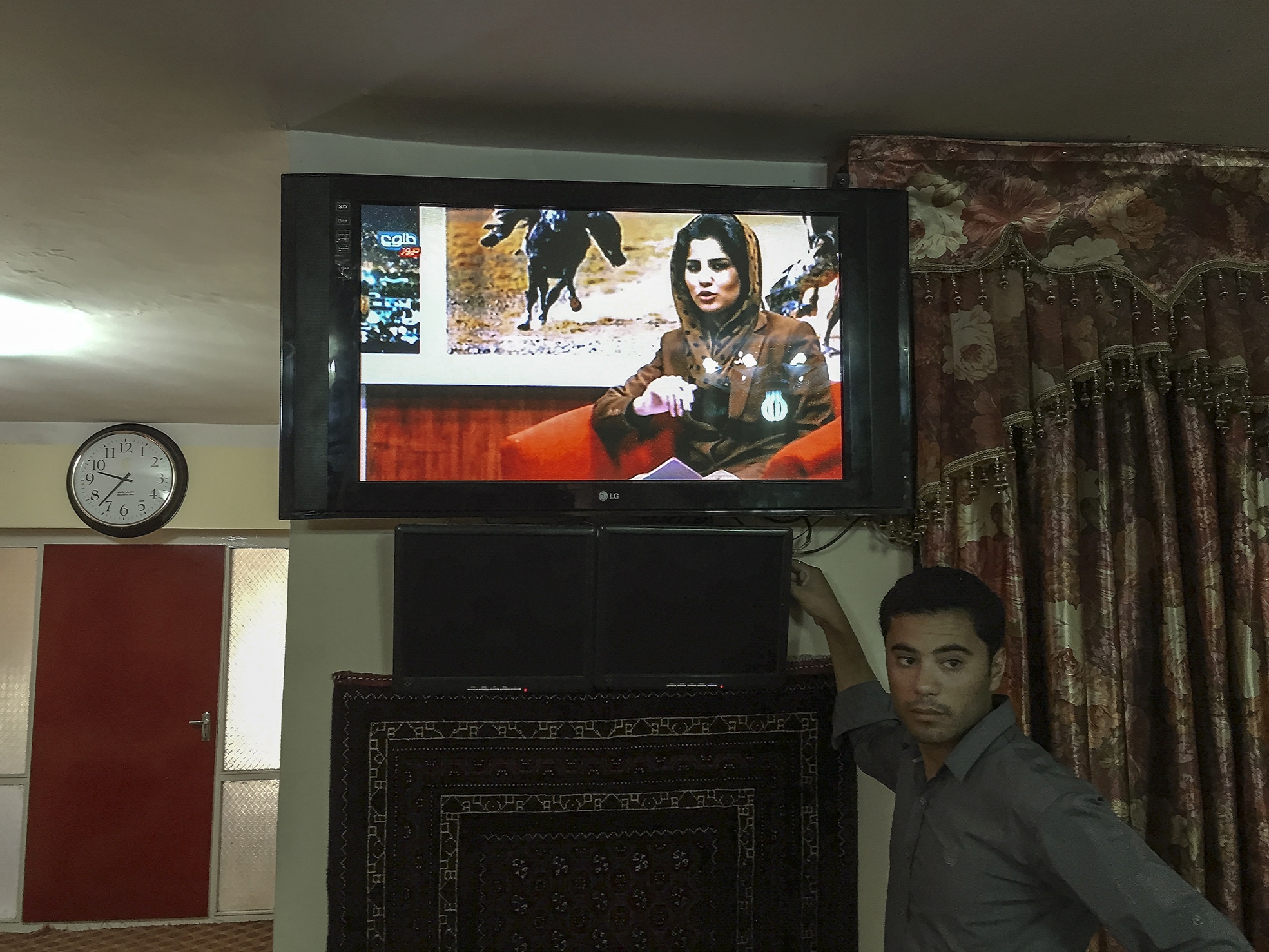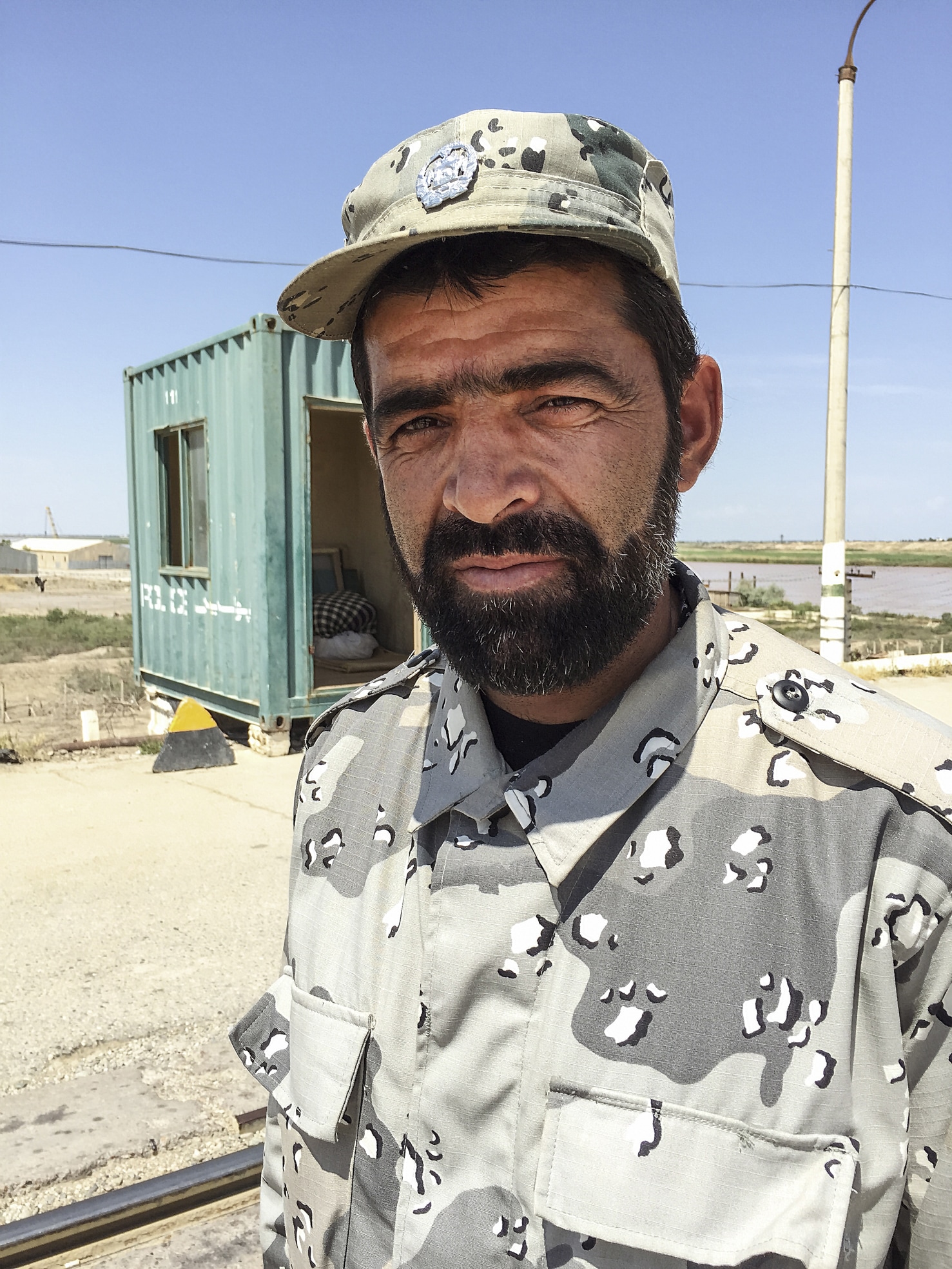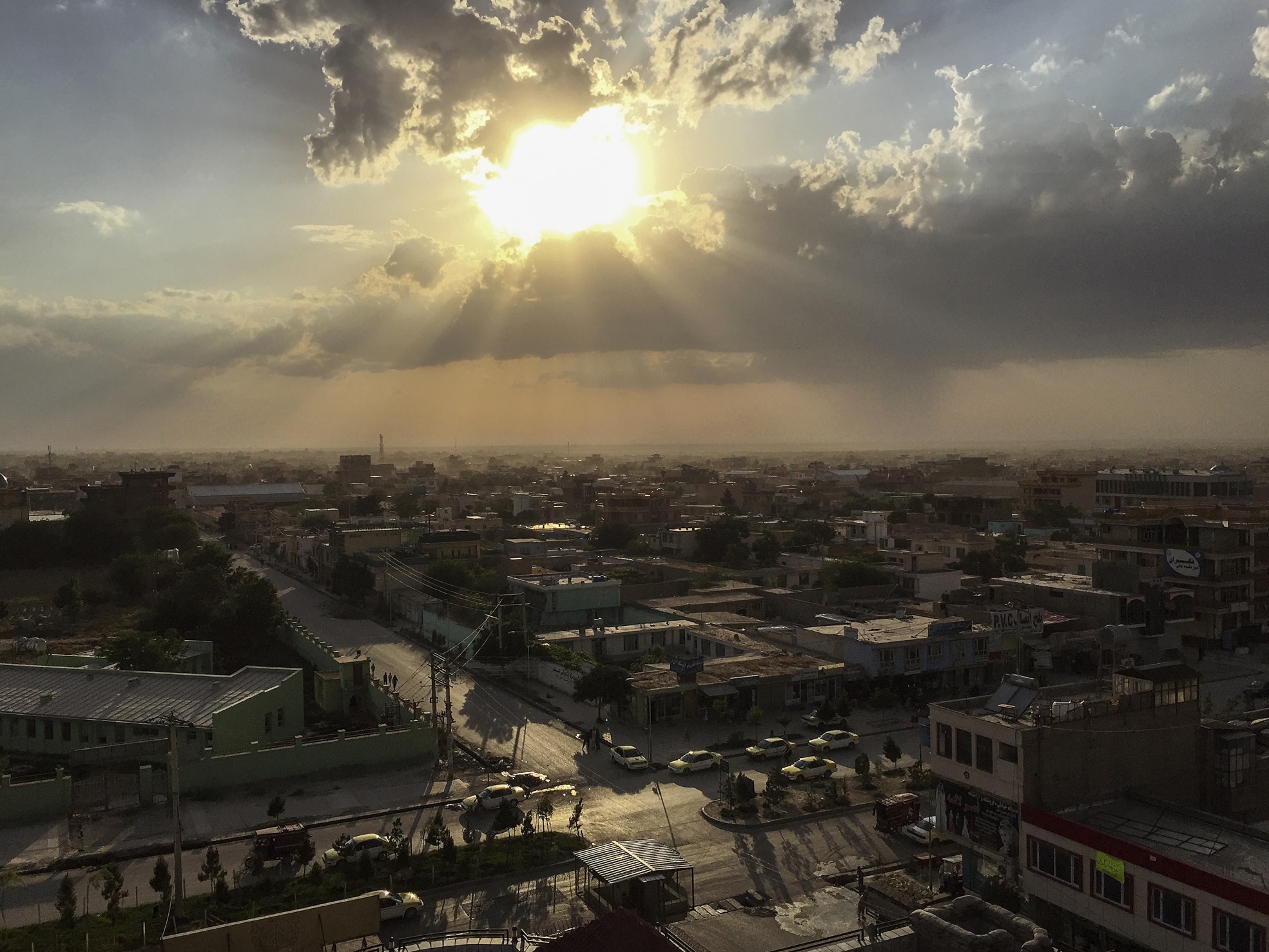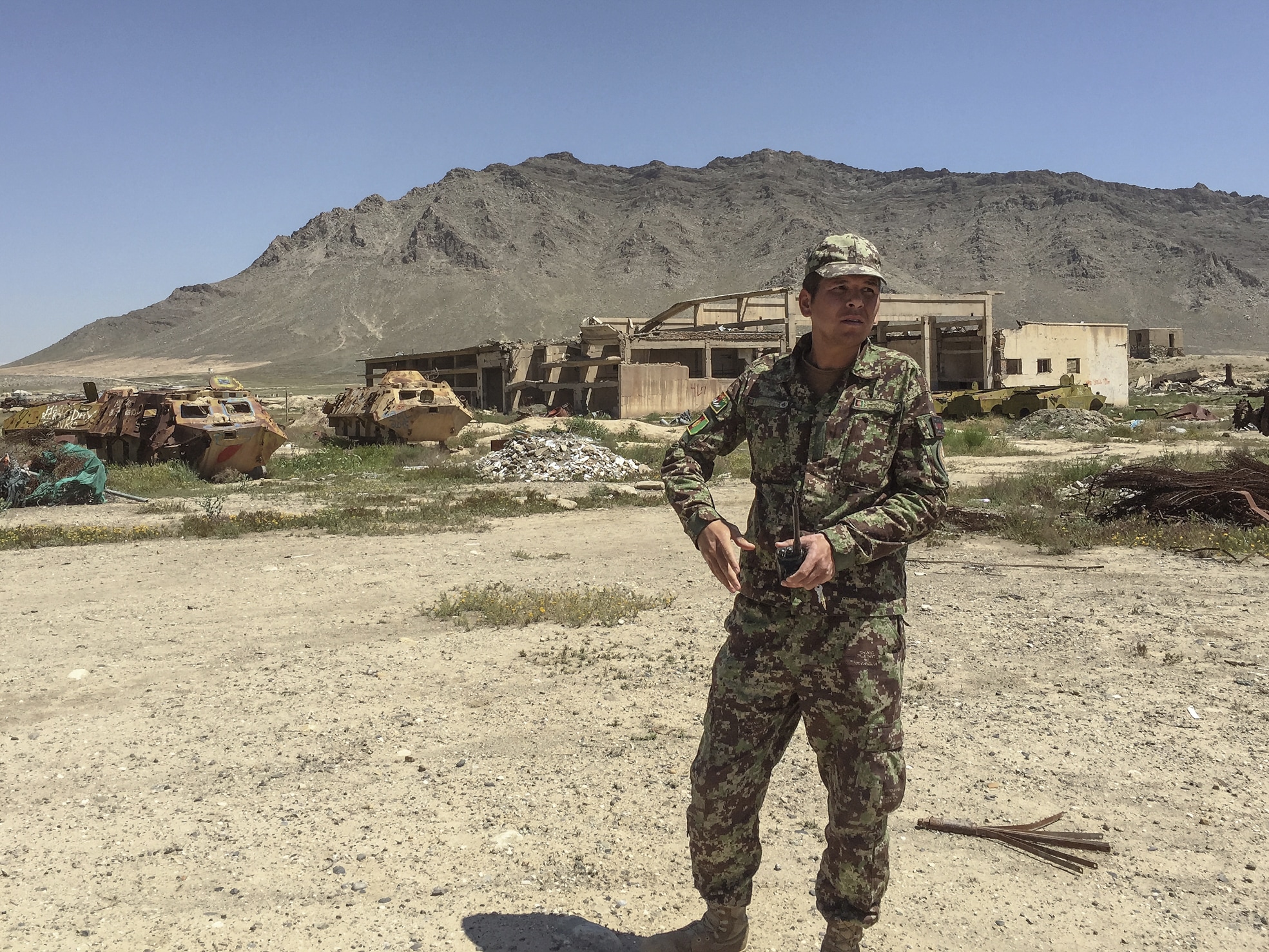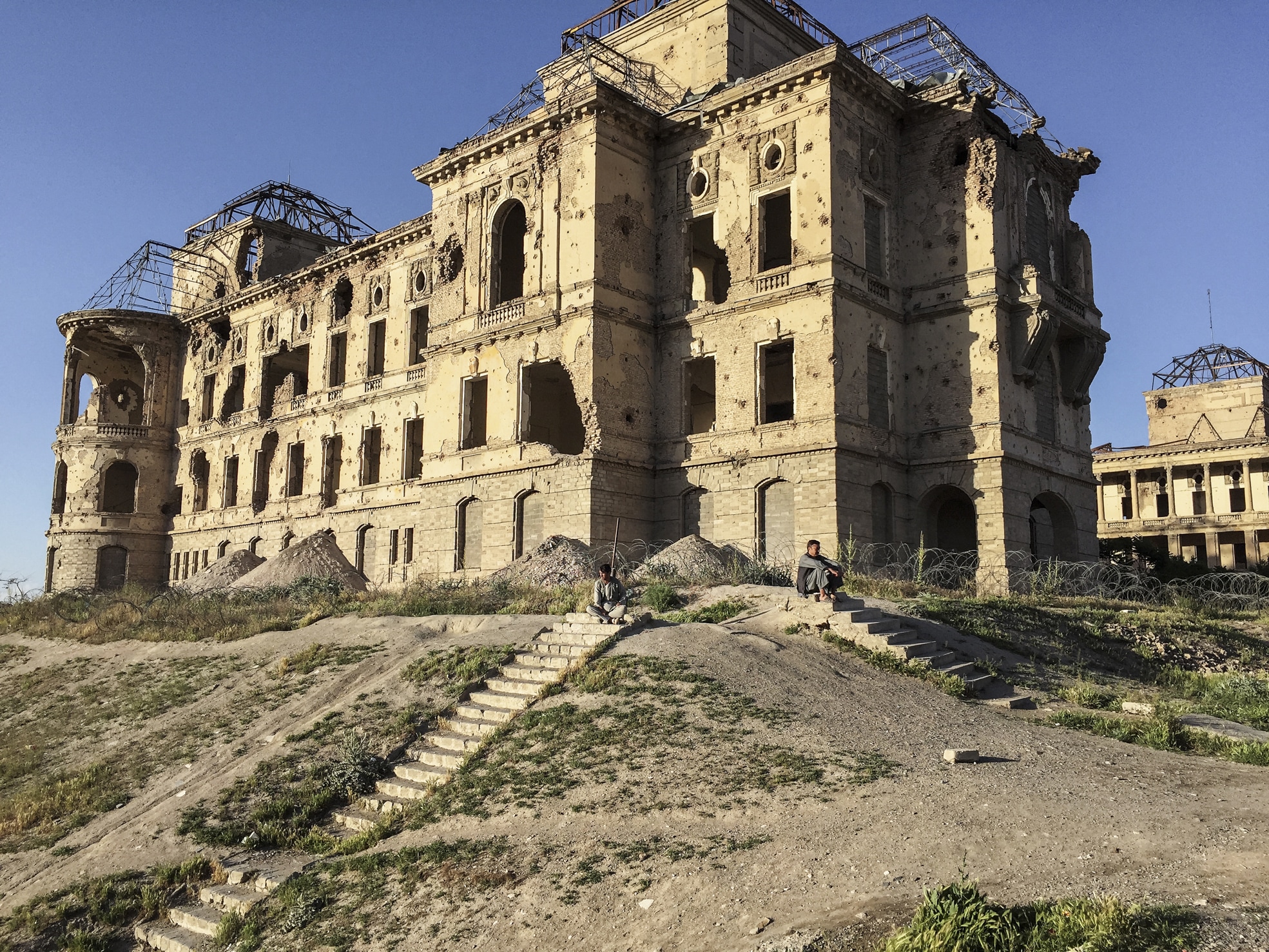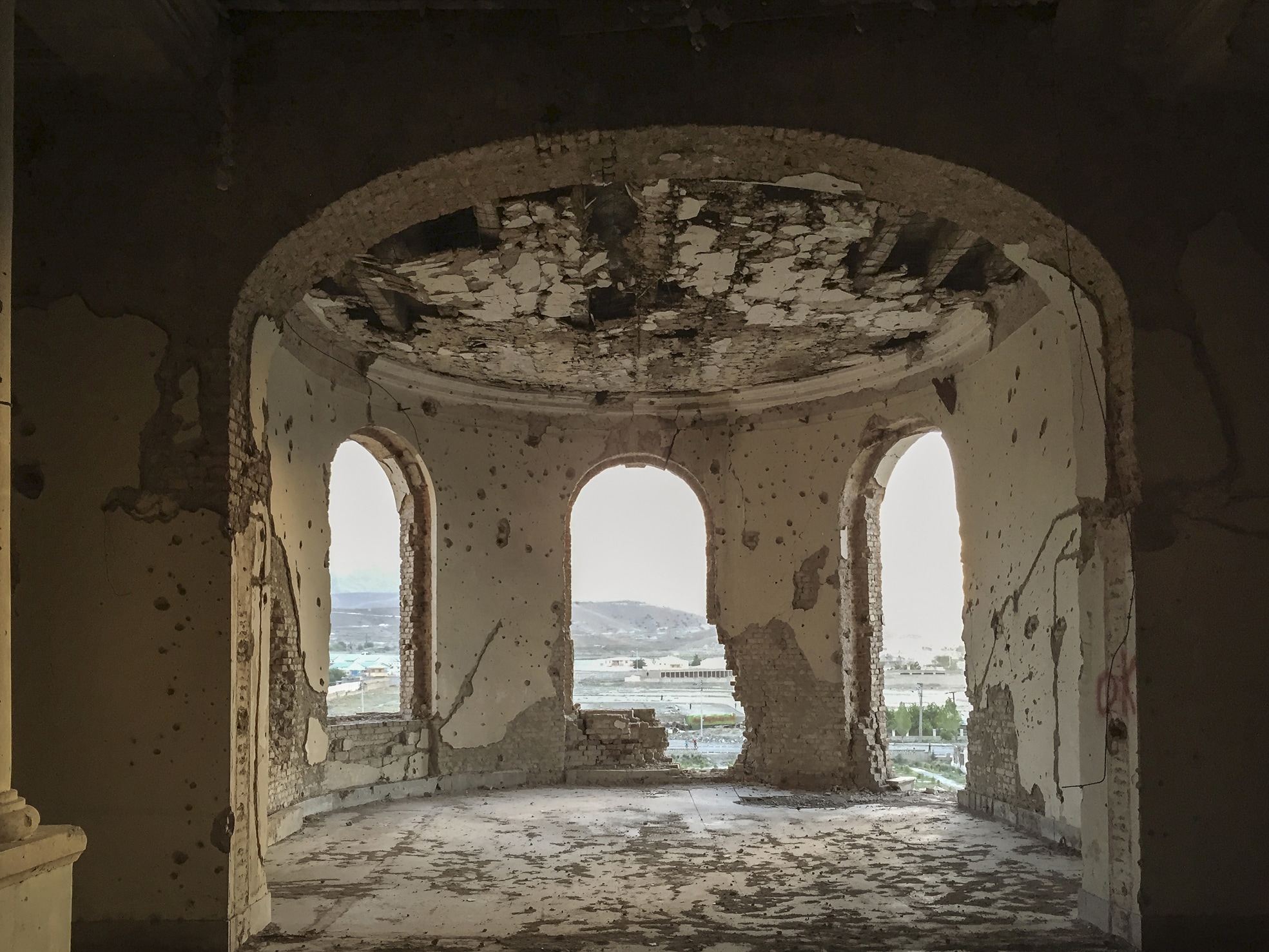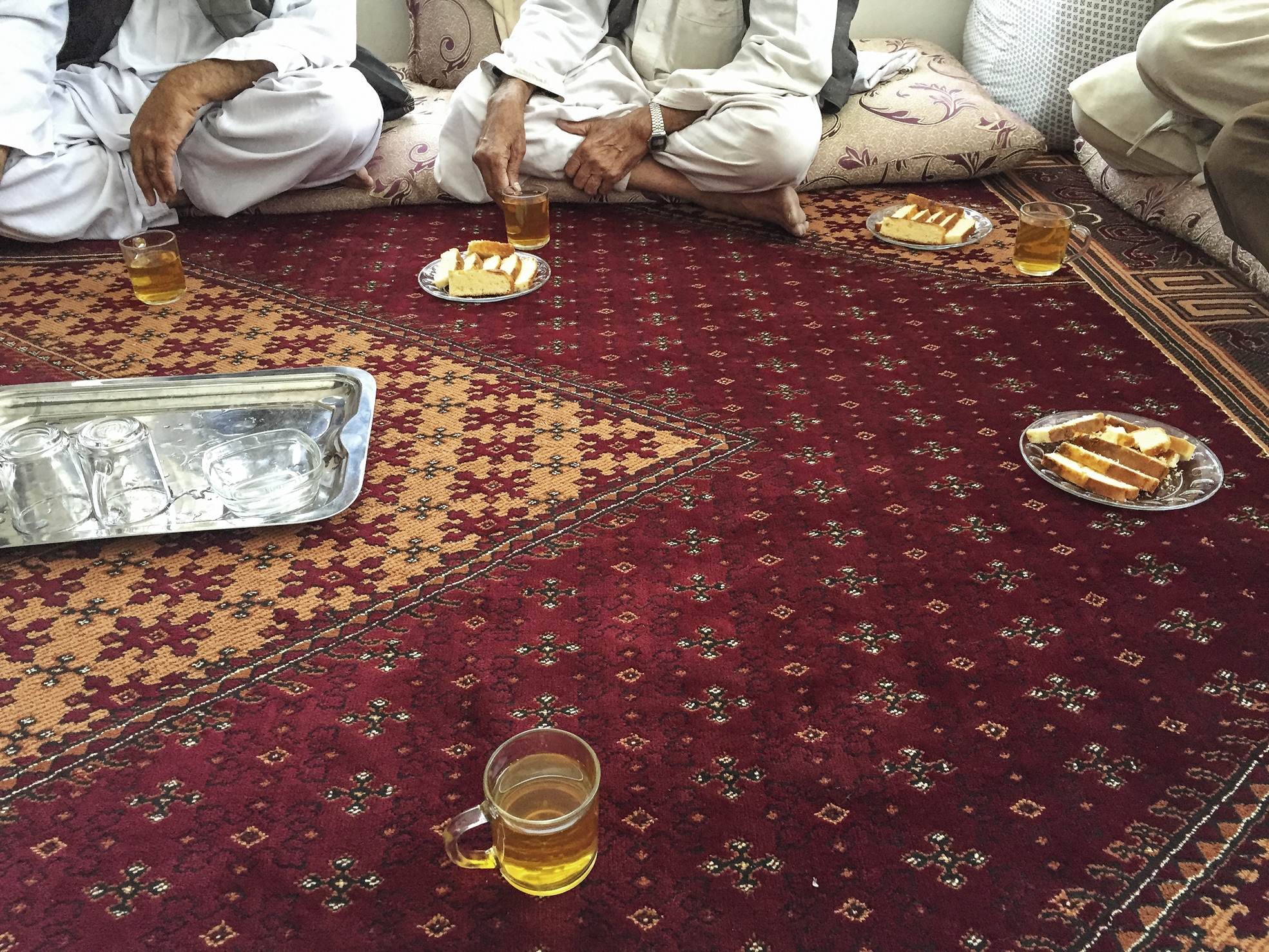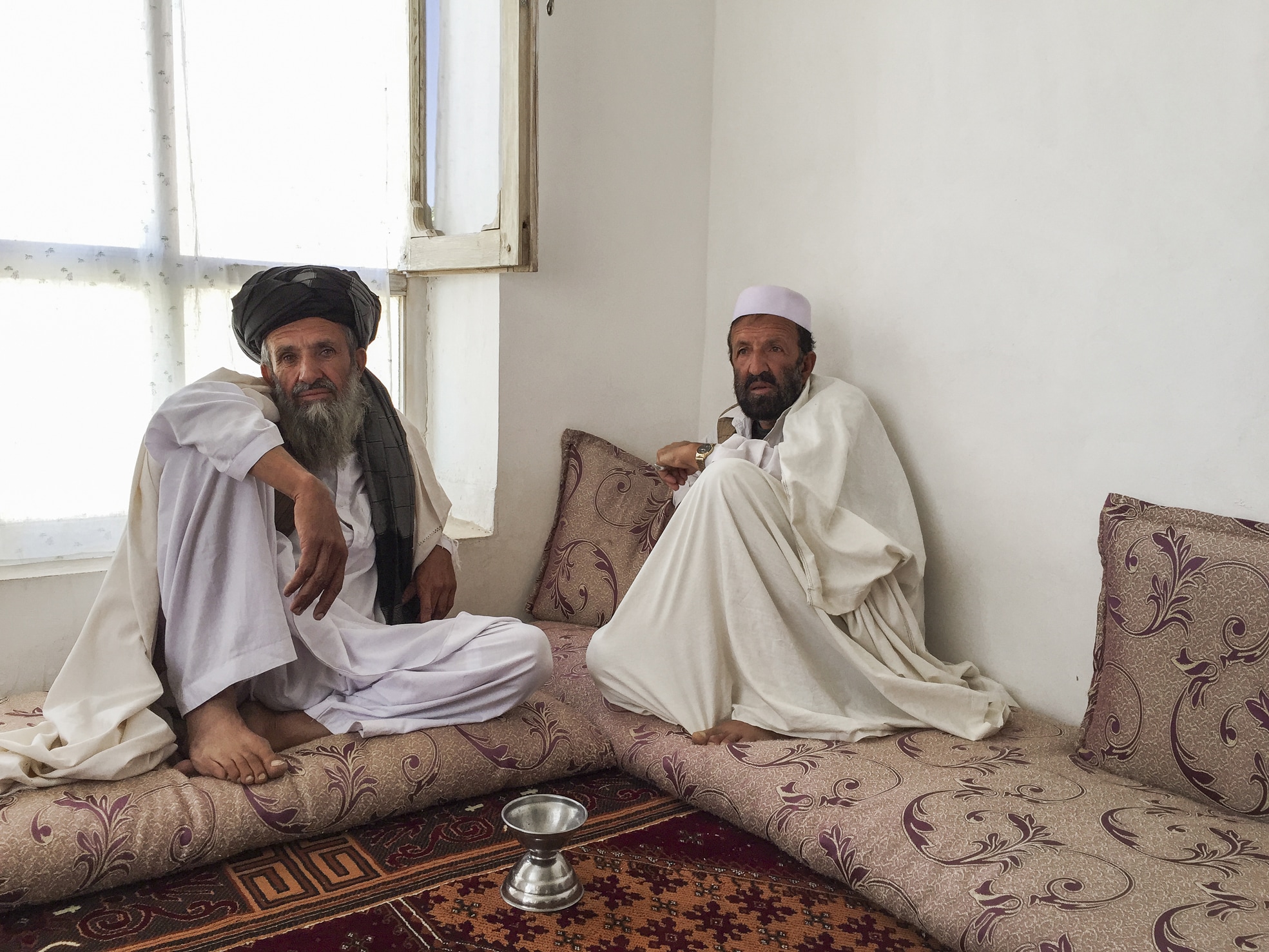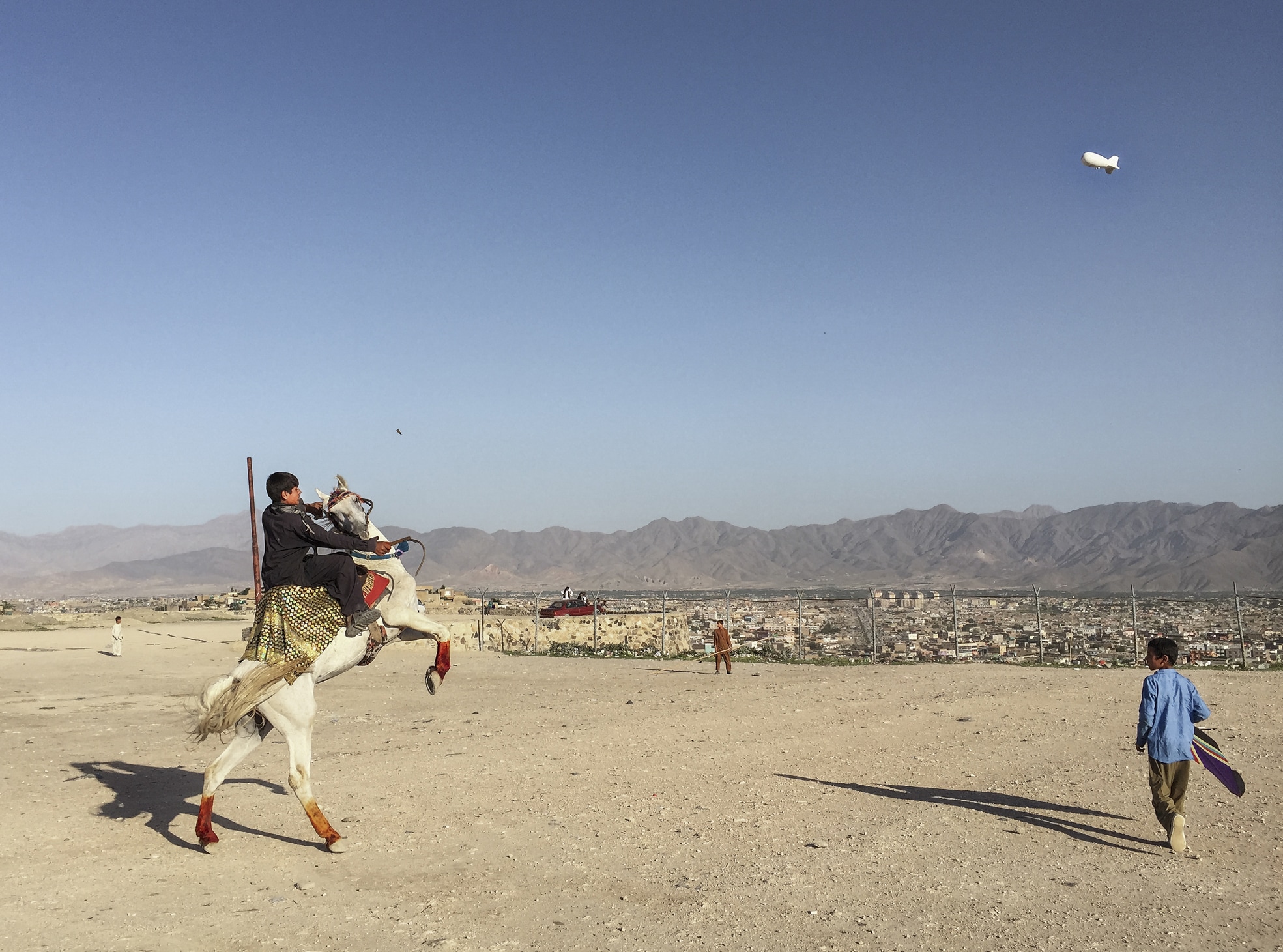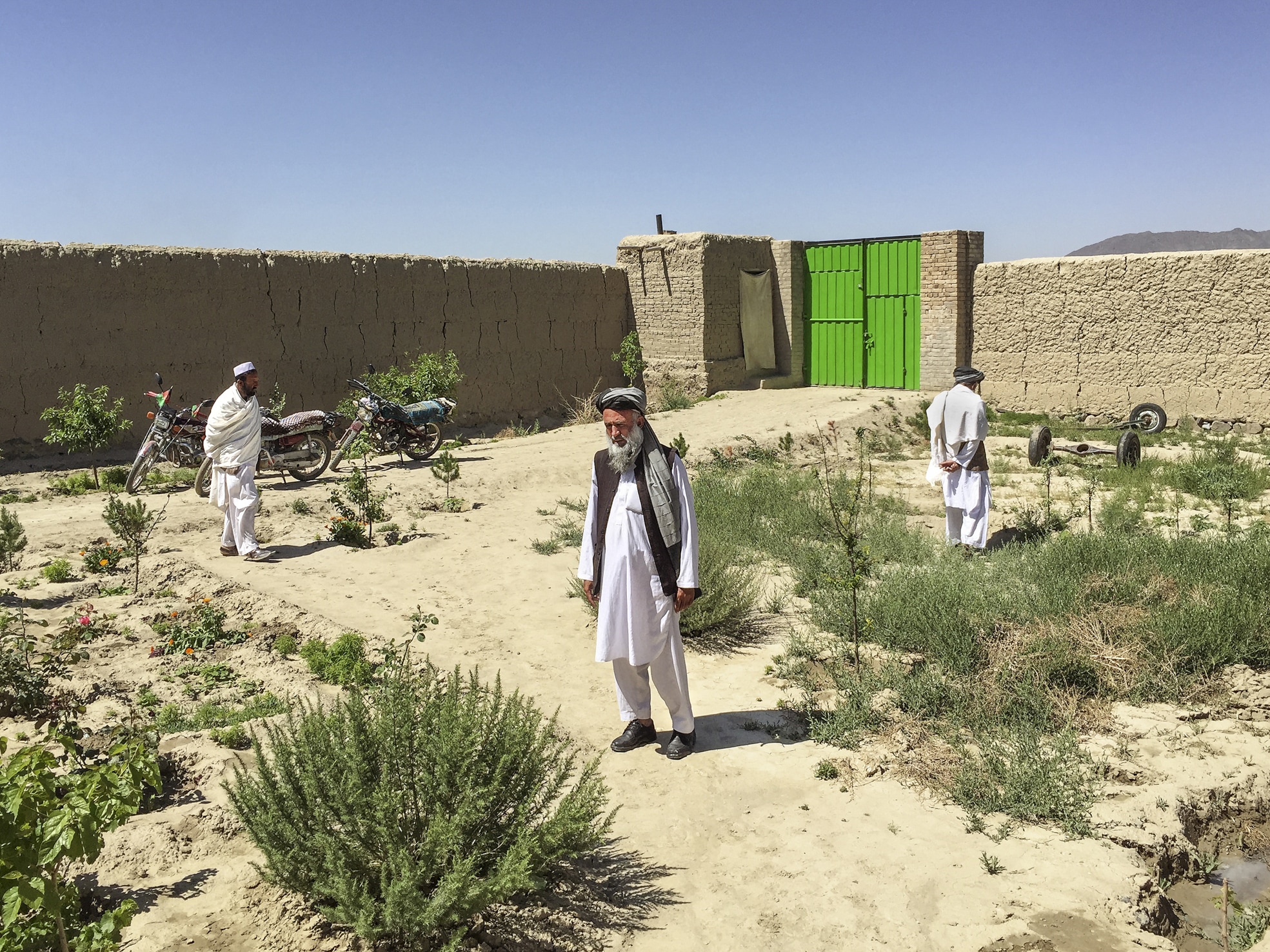Twenty Years is an artistic and journalistic project to assess the legacy of the post 9/11, US-led war in Afghanistan.
Originally conceived in 2019 by journalist, author and film-maker Antony Loewenstein and artist Tia Kass alongside Afghans in Australia, Afghanistan and the Diaspora, Twenty Years is a multi-platform examination of the war and its aftermath after 20 years of conflict. We focus on the role played by Australia and other Western powers in invading and occupying Afghanistan and the consequences of these actions on Islamophobia and media coverage.
Featuring video, audio, portraits, text, photography, journalism, public events and art exhibition, the project aims to interrogate the reasons behind the conflict, who lost and gained, the impact on Afghan civilians and the legacy of the longest war in US history after the Taliban takeover in August 2021.
A key aim of Twenty Years is centering Afghan voices and their stories which are routinely ignored in the mainstream media in favour of pro-war pundits, military generals and politicians. By working with Afghan civilians, refugees, activists, artists and advocates, the project will show an Afghanistan that rarely breaks into the public consciousness.
Phase one of the project launched in October 2021 with public events featuring Afghans in Australia and globally discussing the war and new artwork and journalism on civilians affected by the conflict.
Phase two launched in 2022 with an exhibition of Afghan artists in Australia, Afghanistan and the Diaspora at Blacktown Arts gallery in Sydney, Australia. The featured artists were Khadim Ali, Elyas Alavi, Orna Kazimi and Najiba Noori, Tia Kass and Antony Loewenstein. The show was curated by Antony Loewenstein and artist Alana Hunt with curatorial advice by Nur Shkembi.
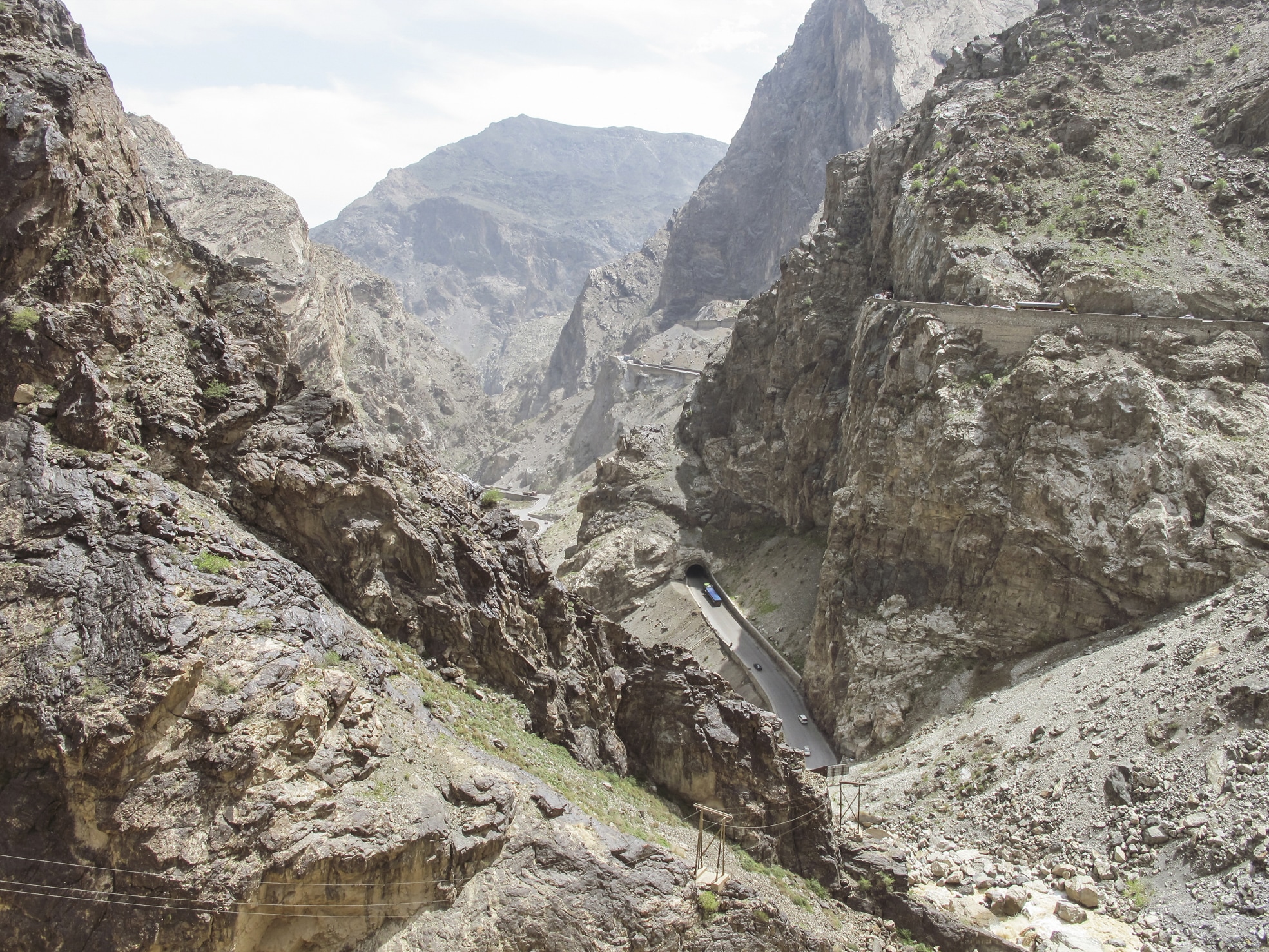
Documentation
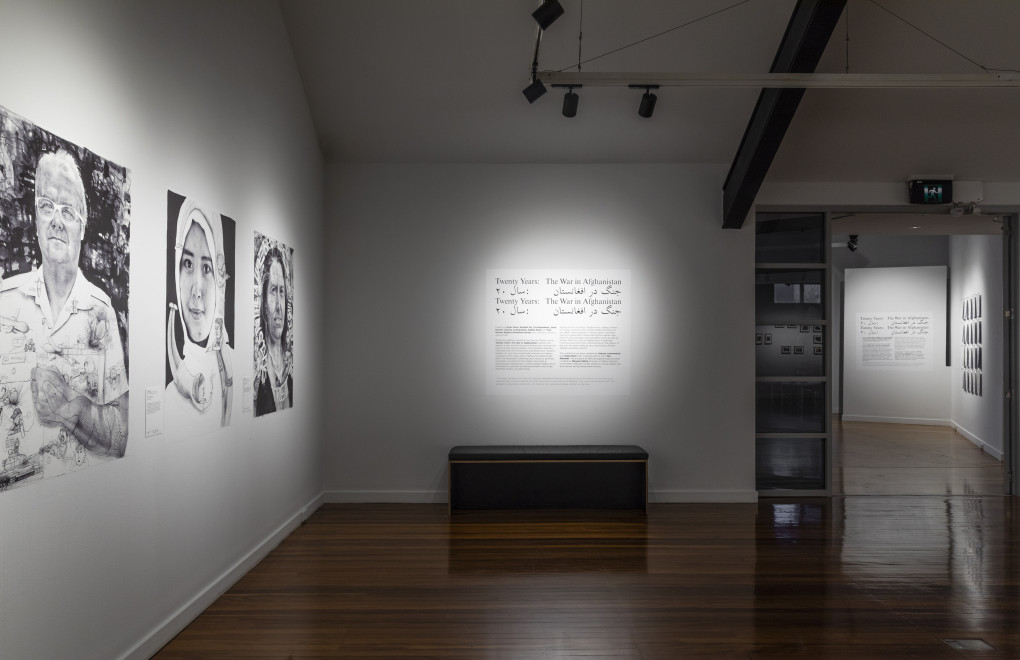
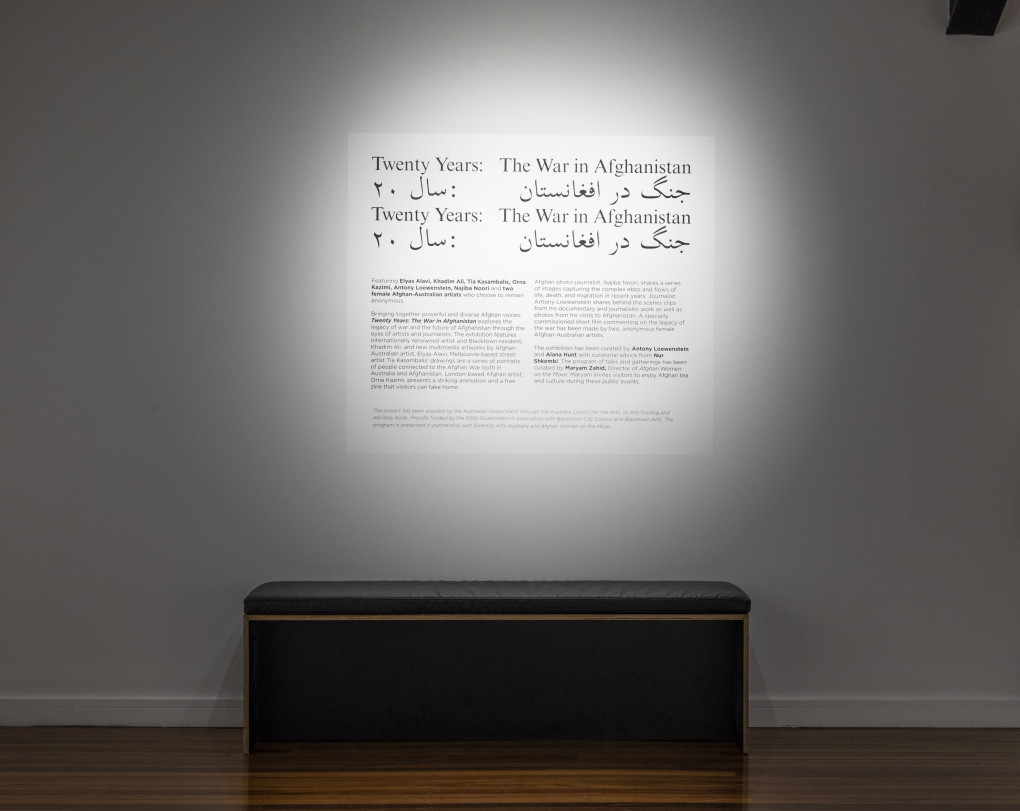
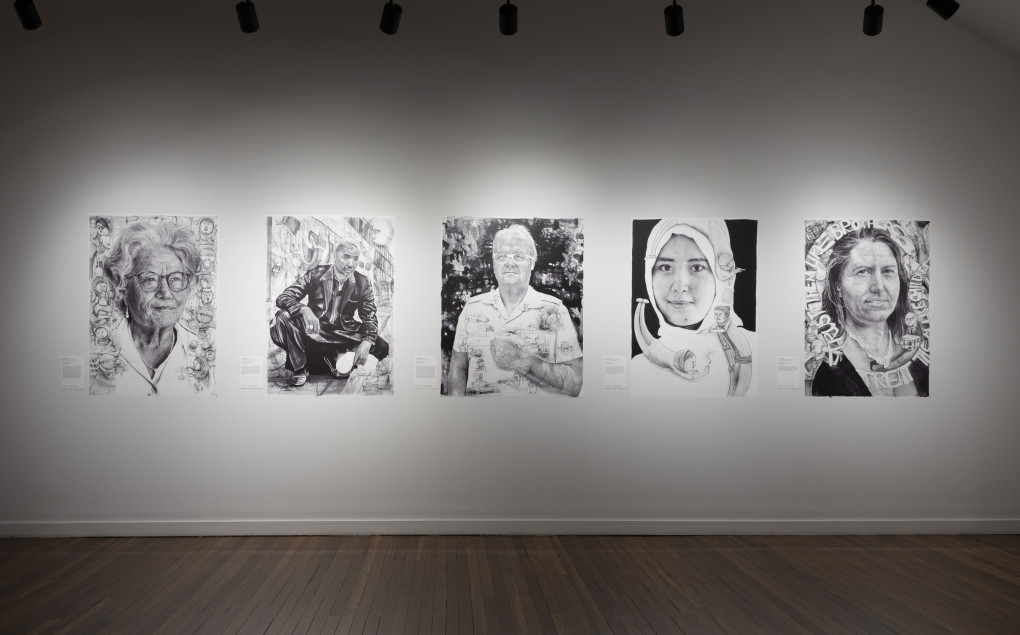
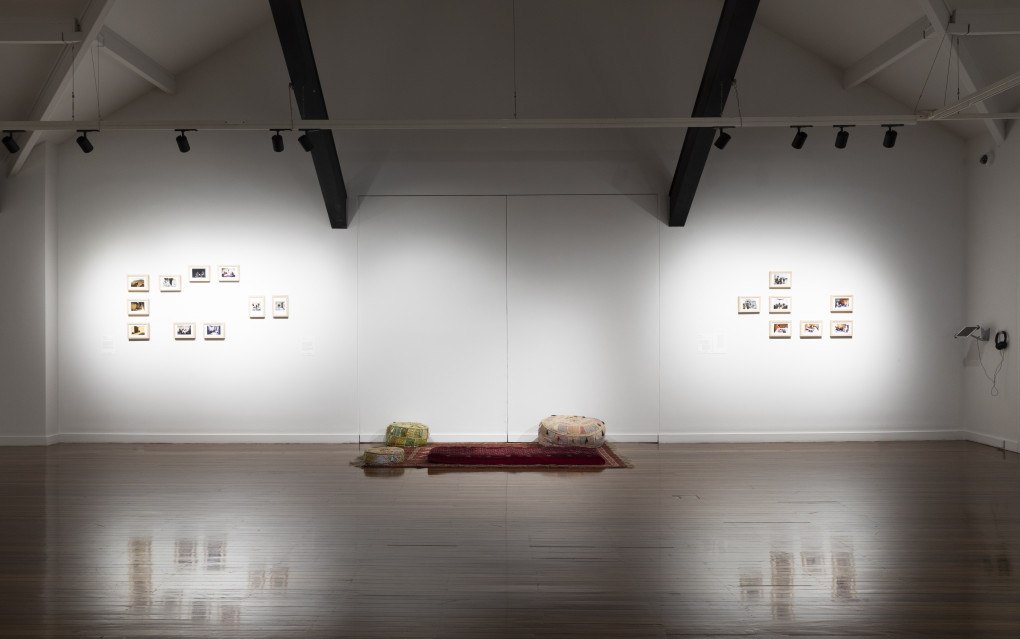
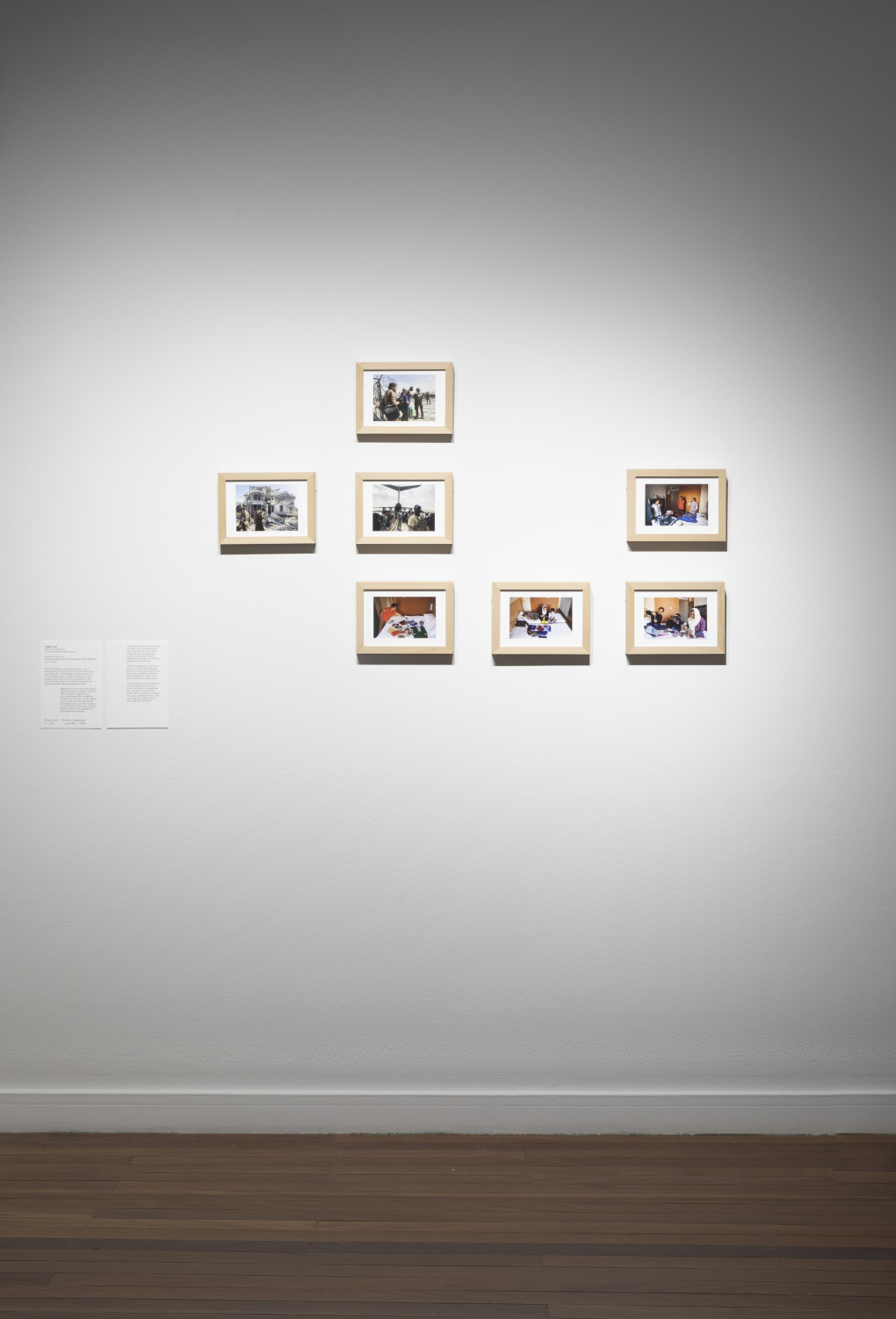
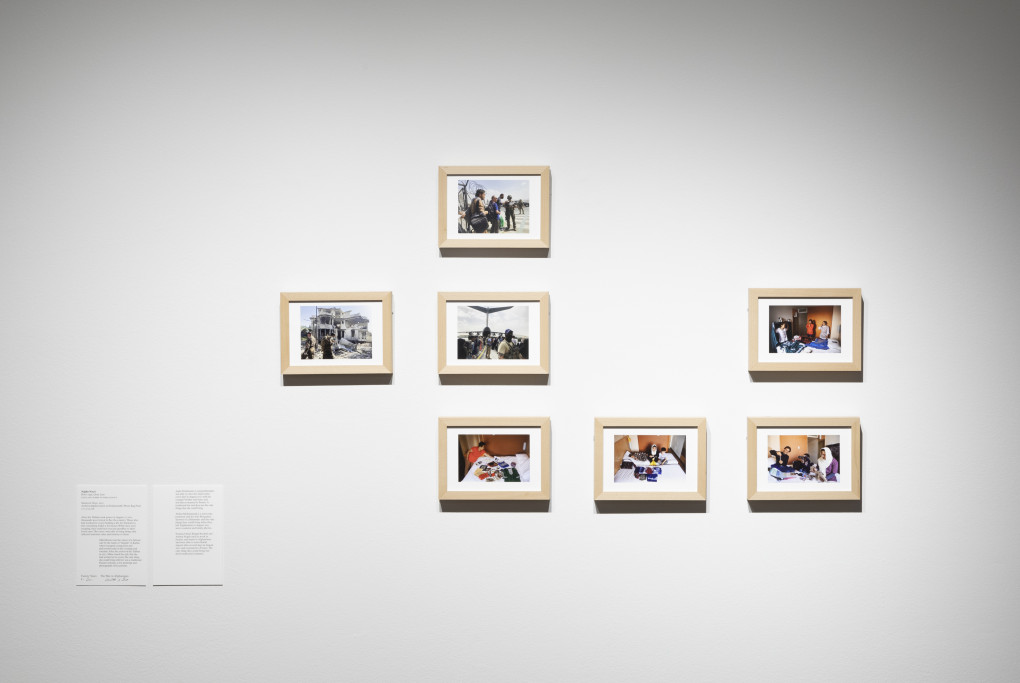
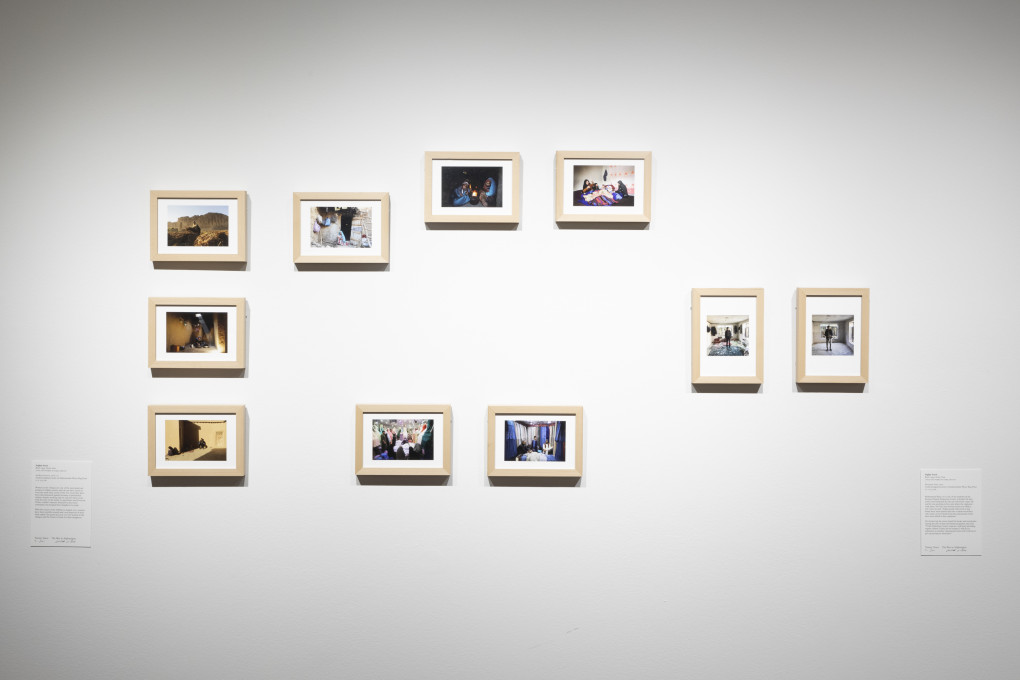
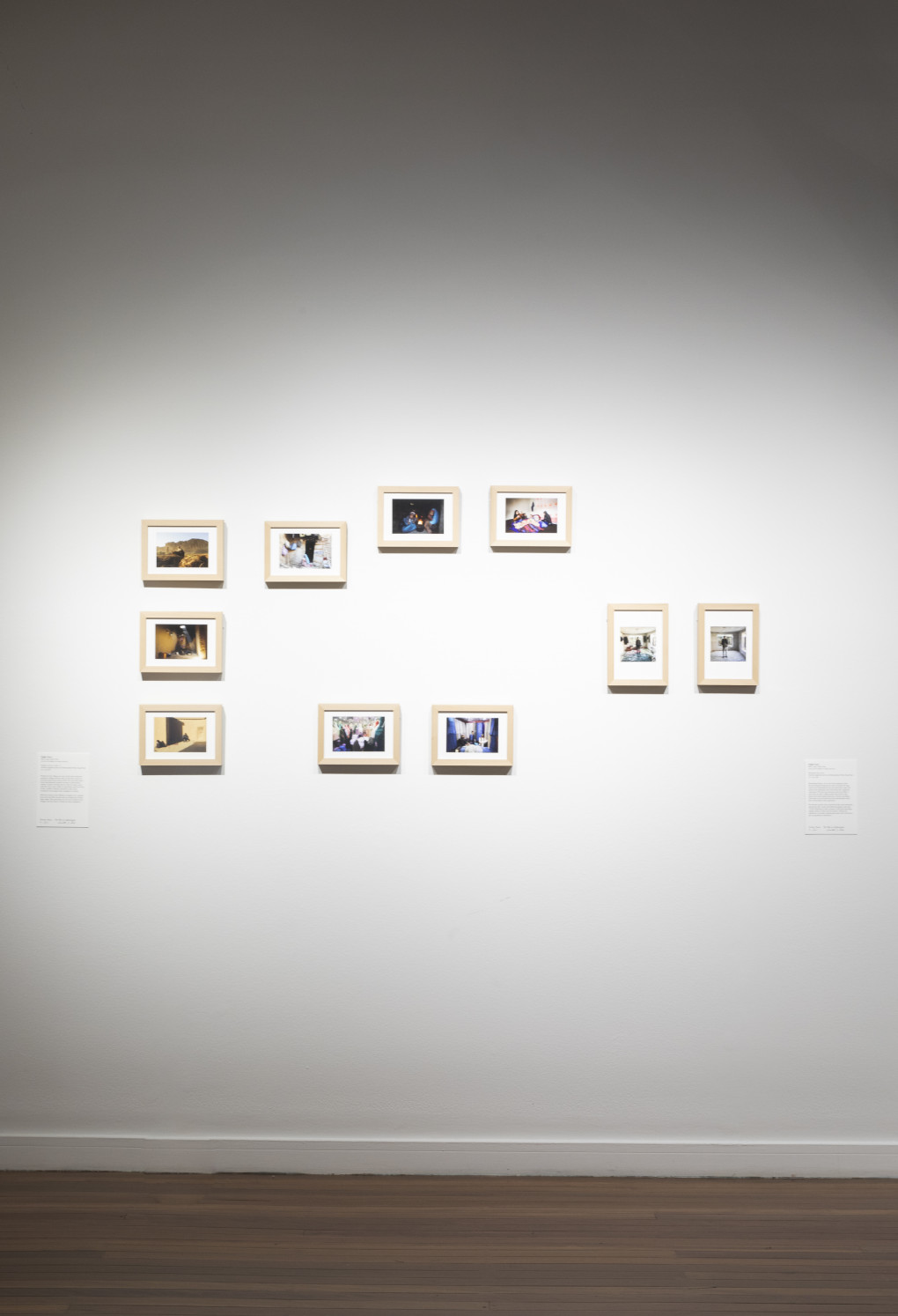
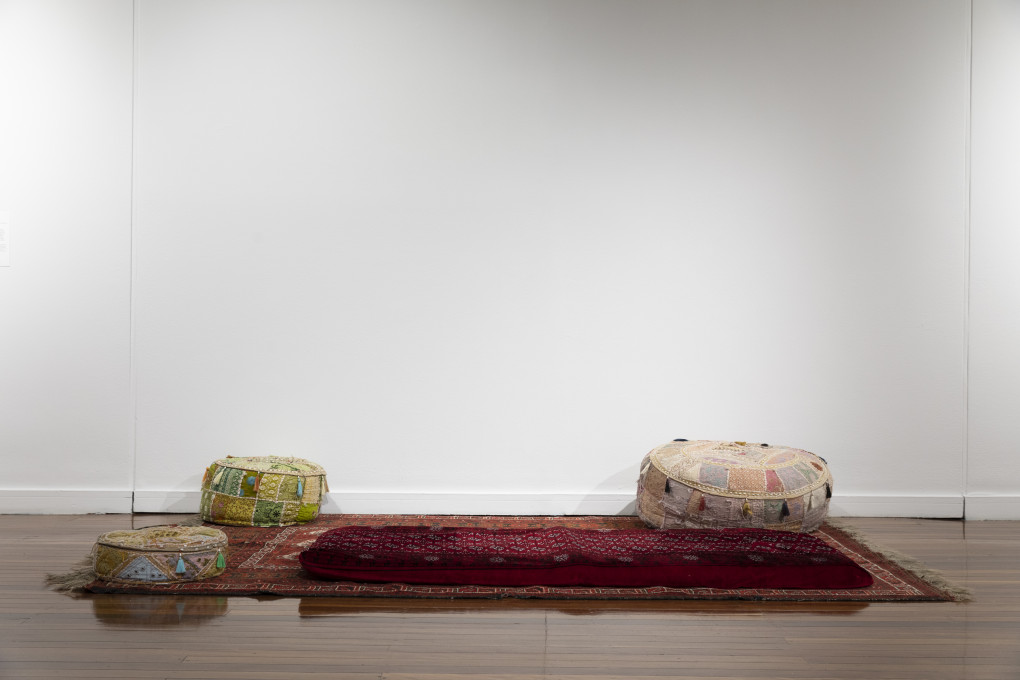
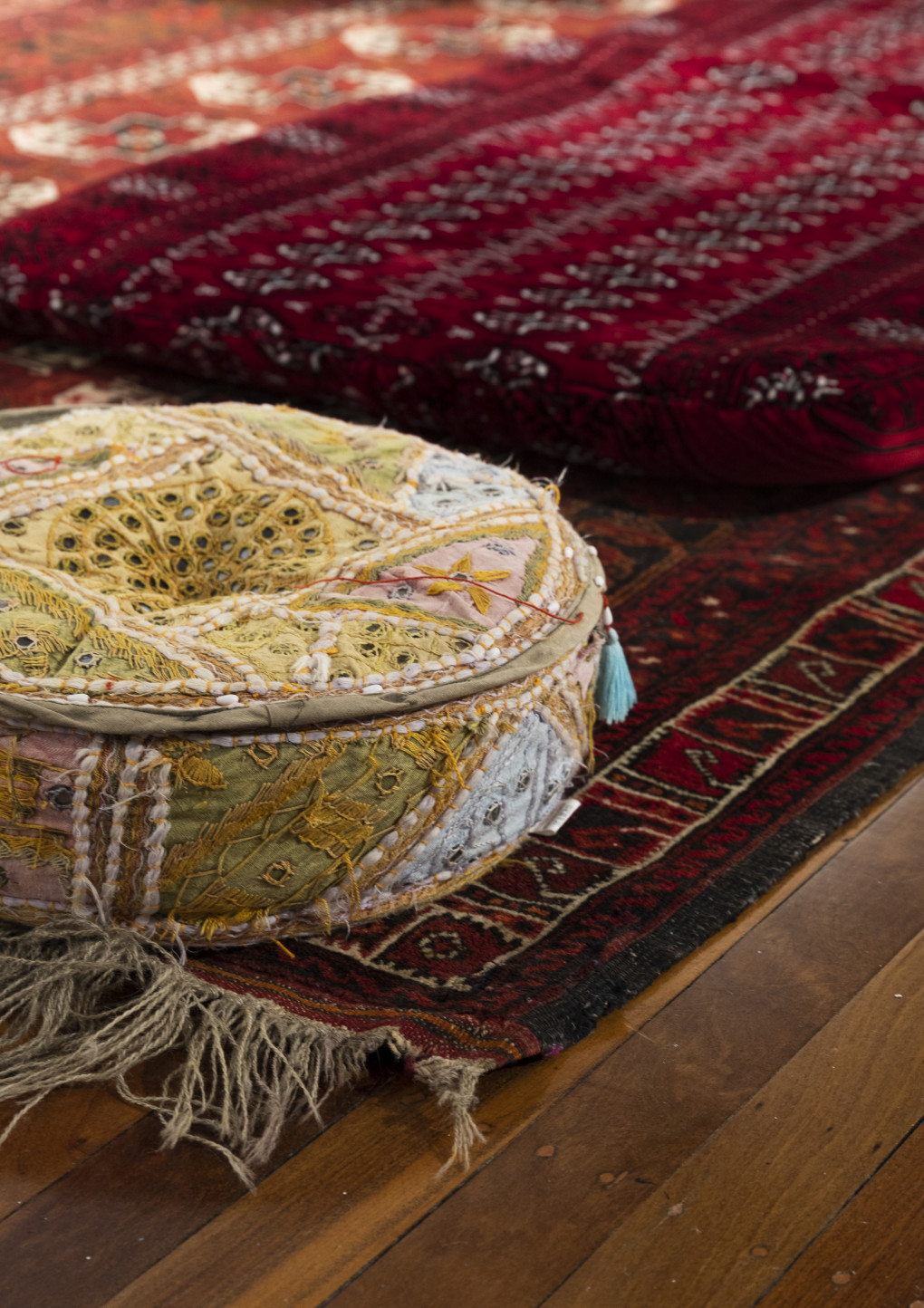
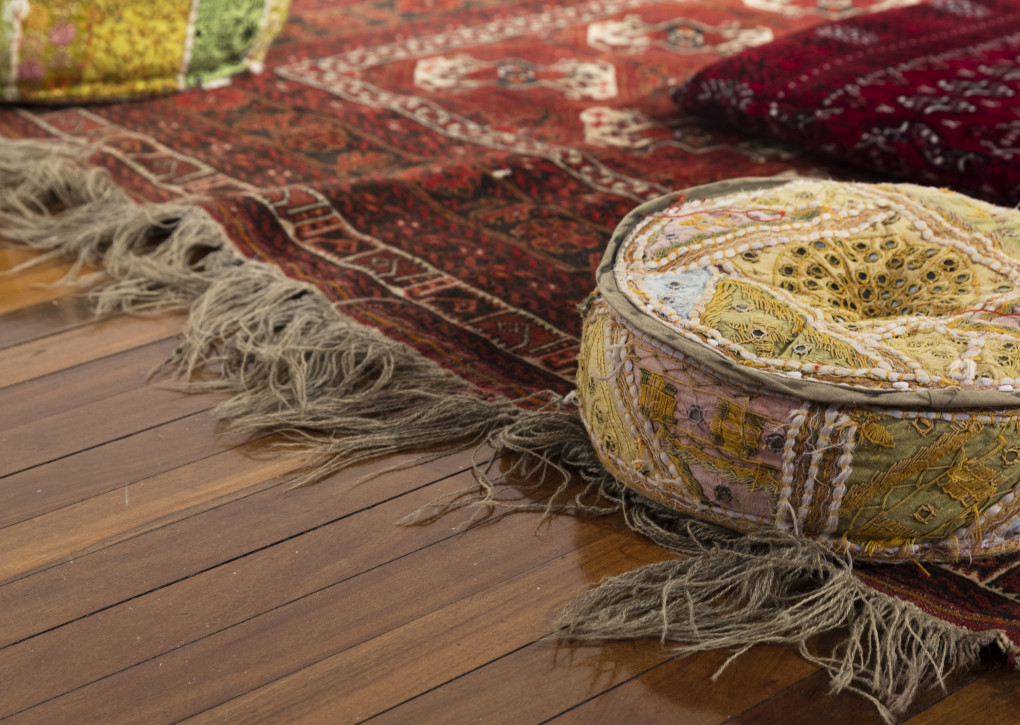
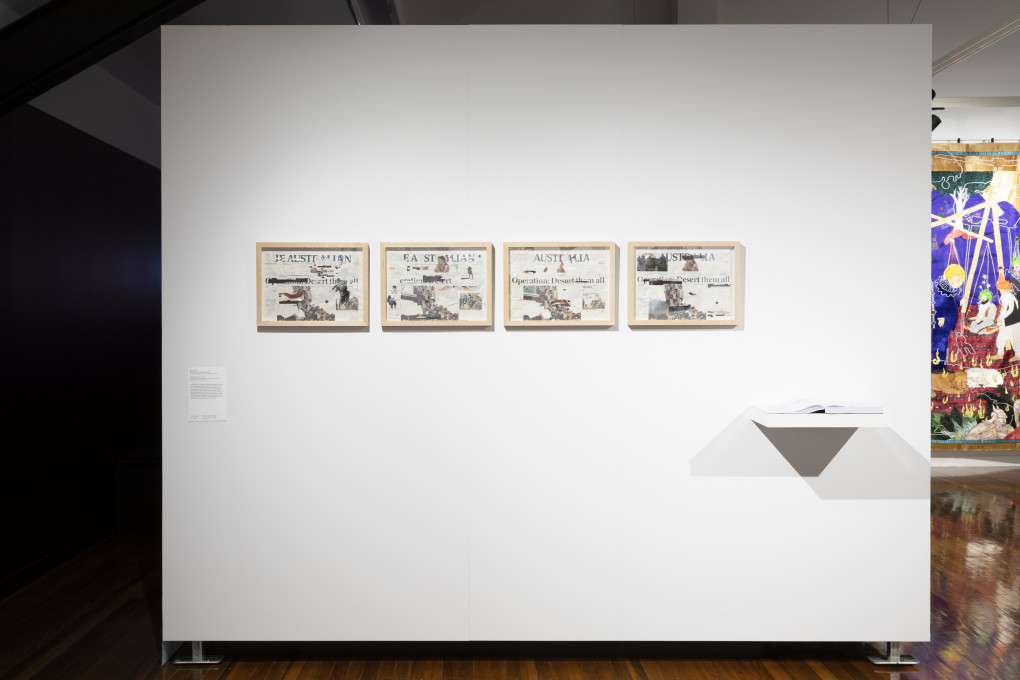
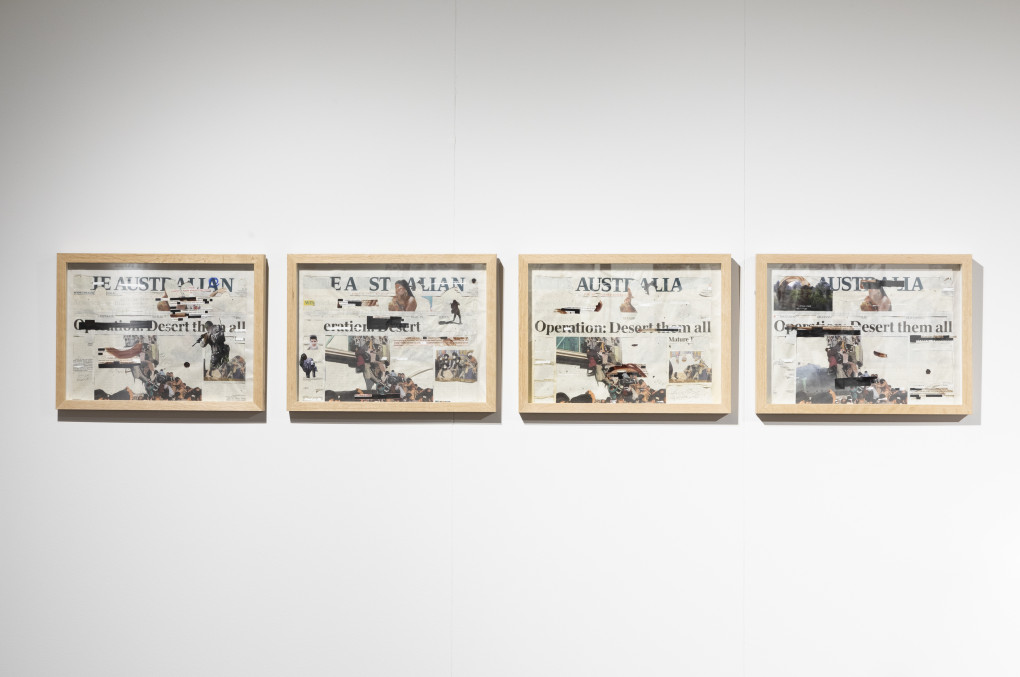
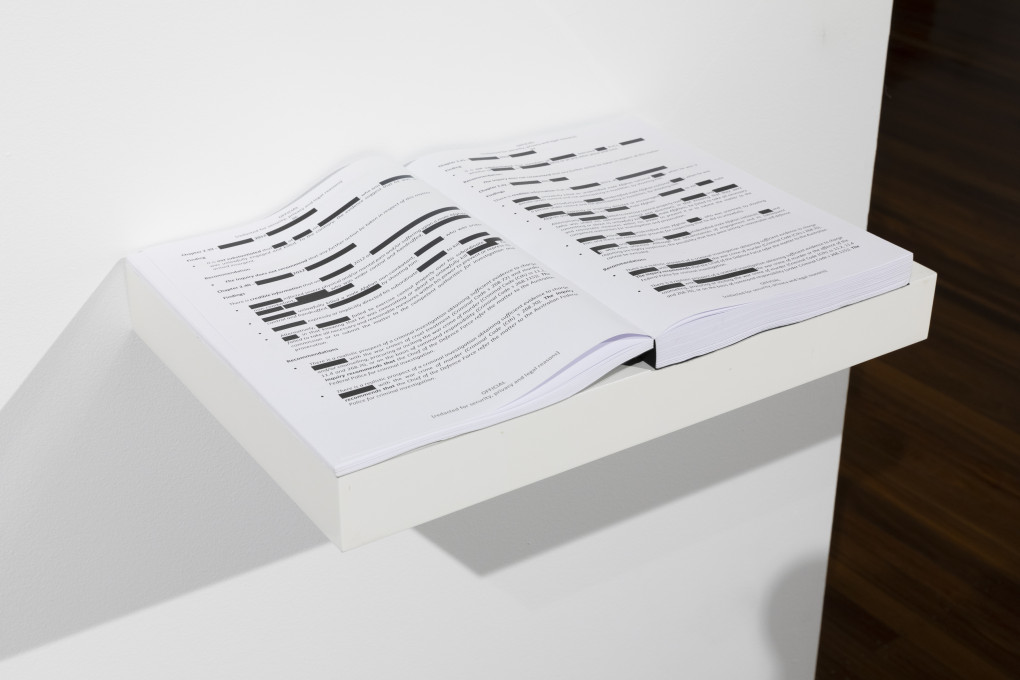
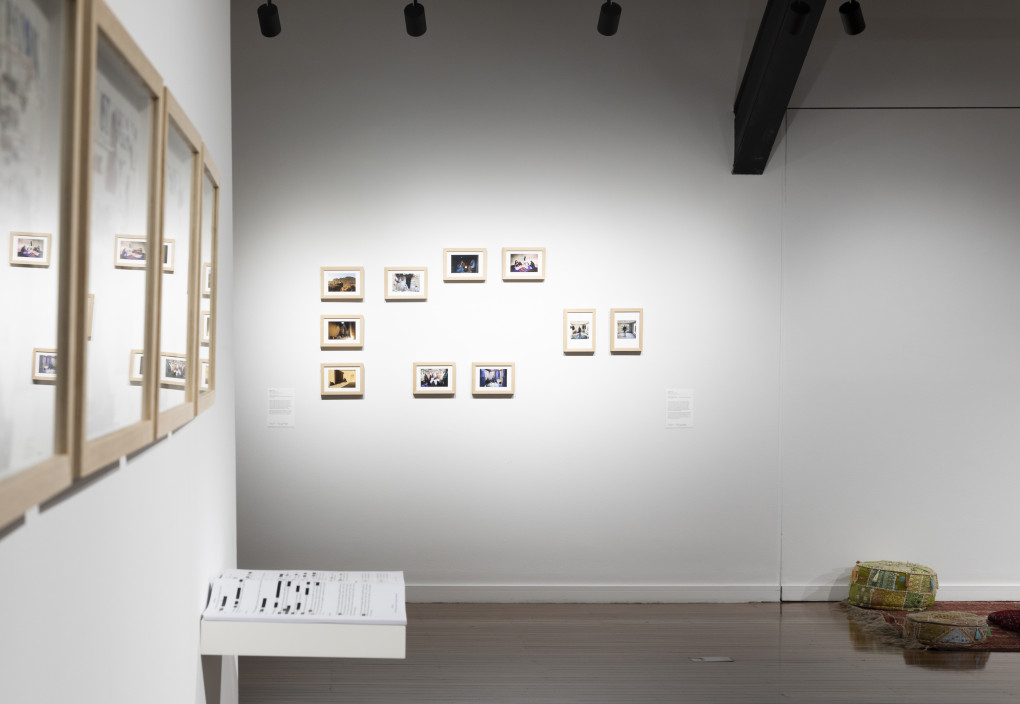
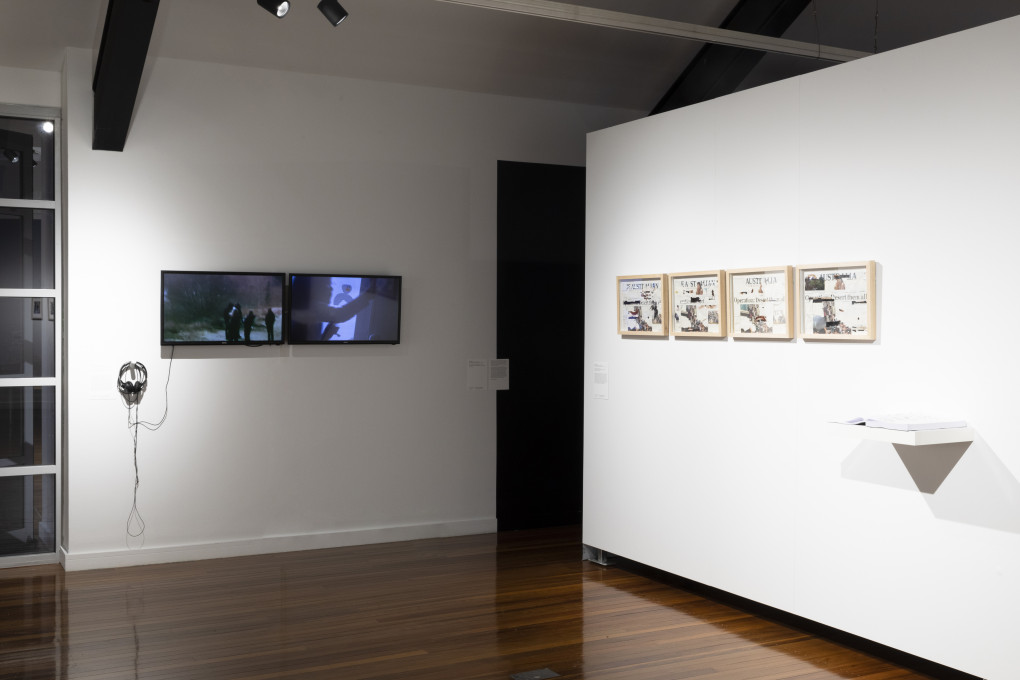
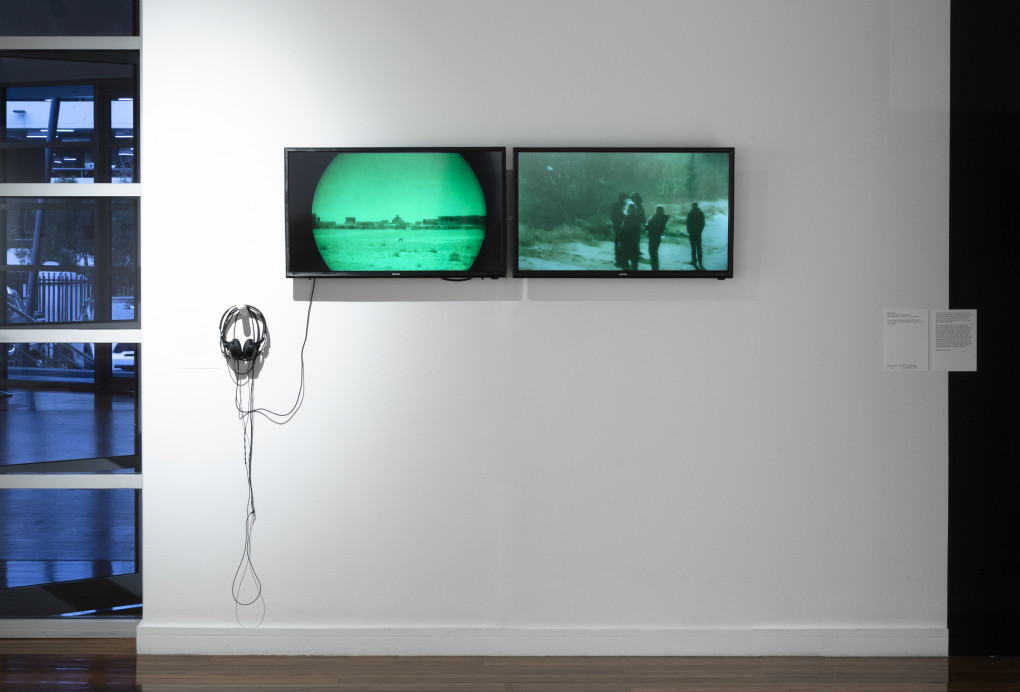
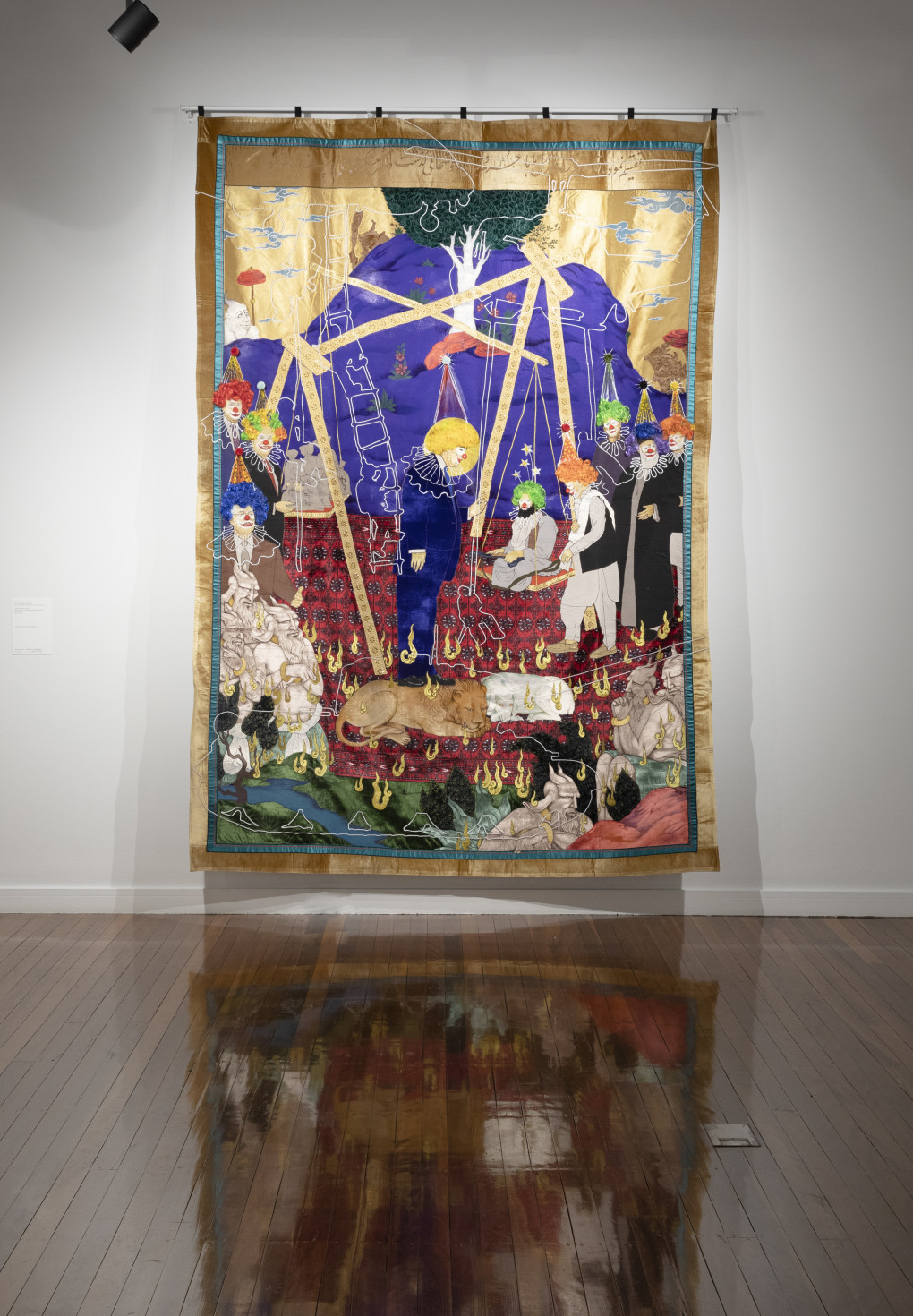
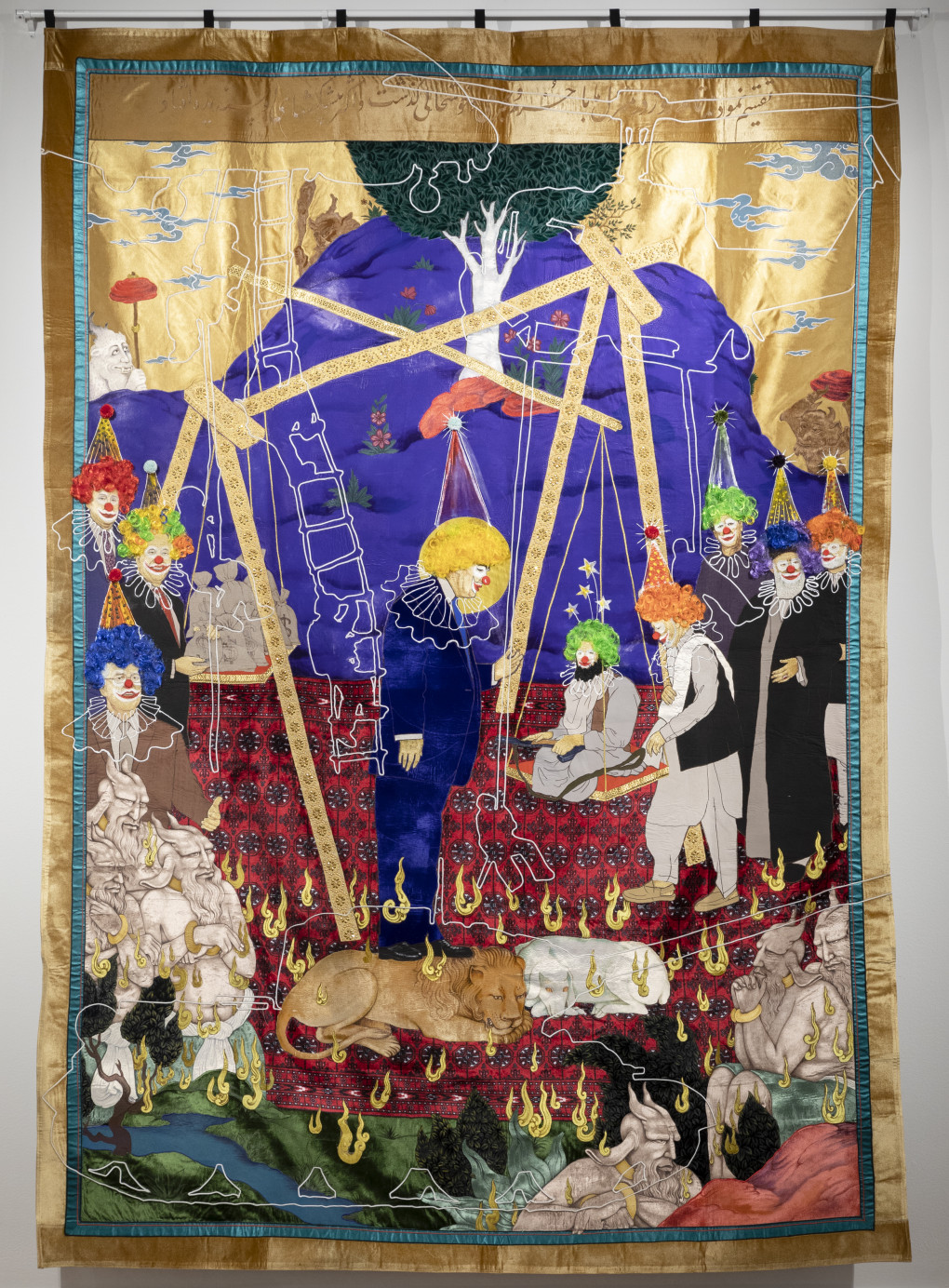
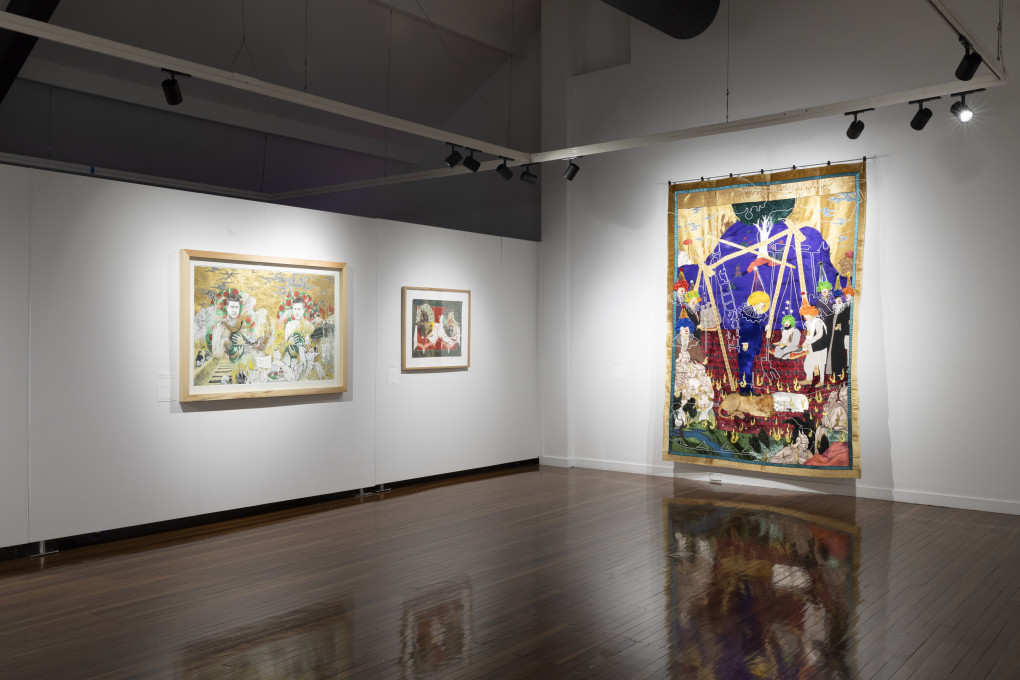
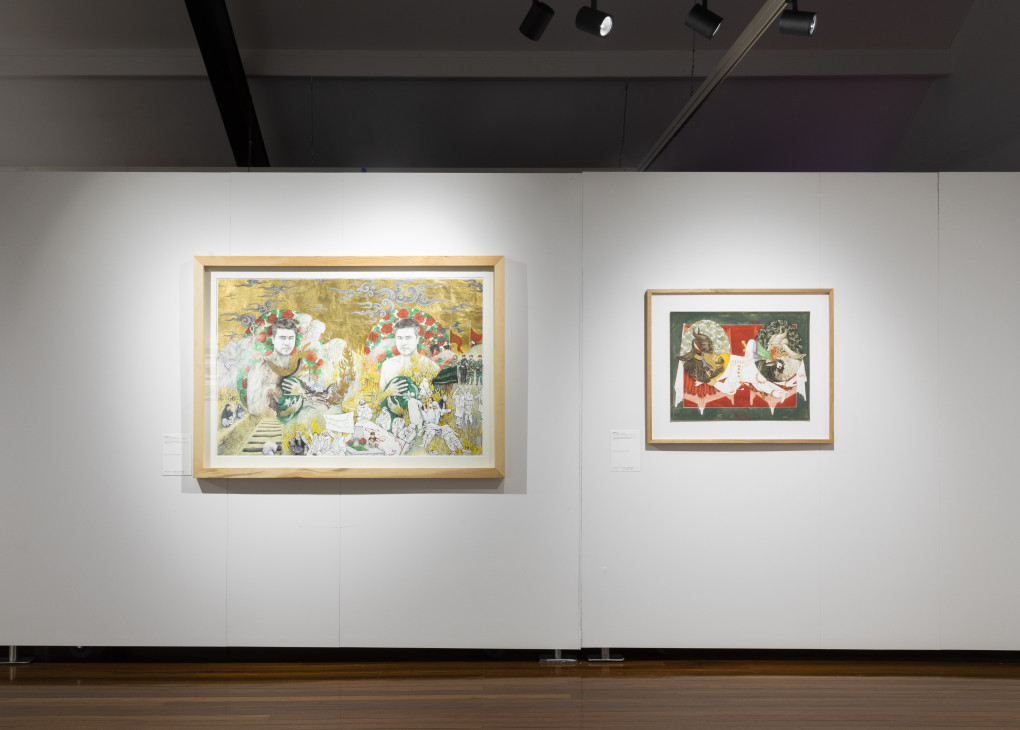
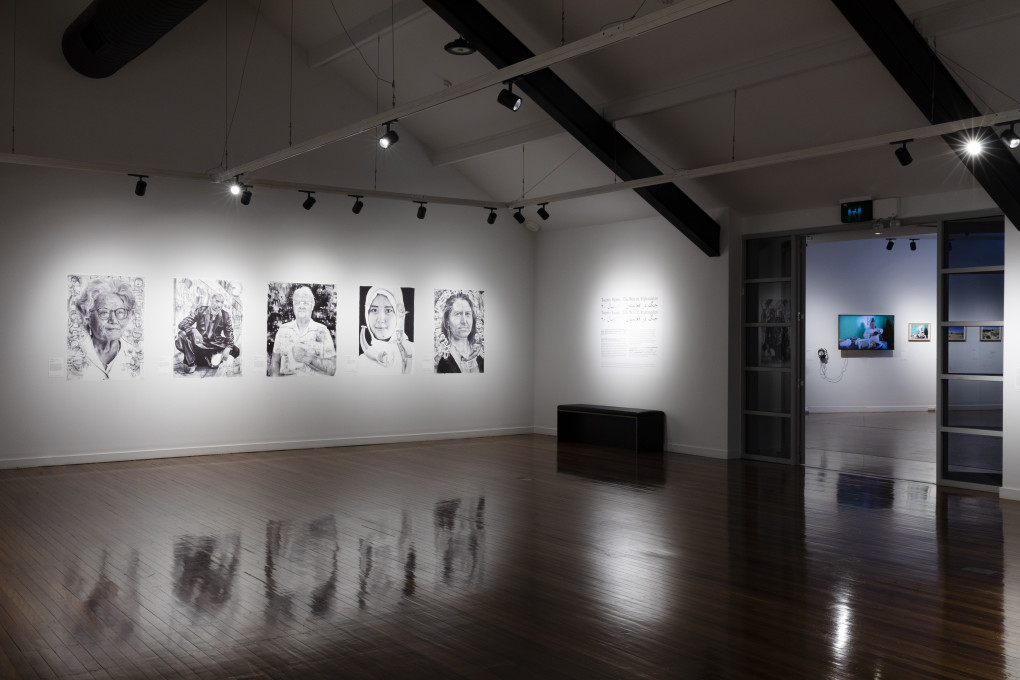
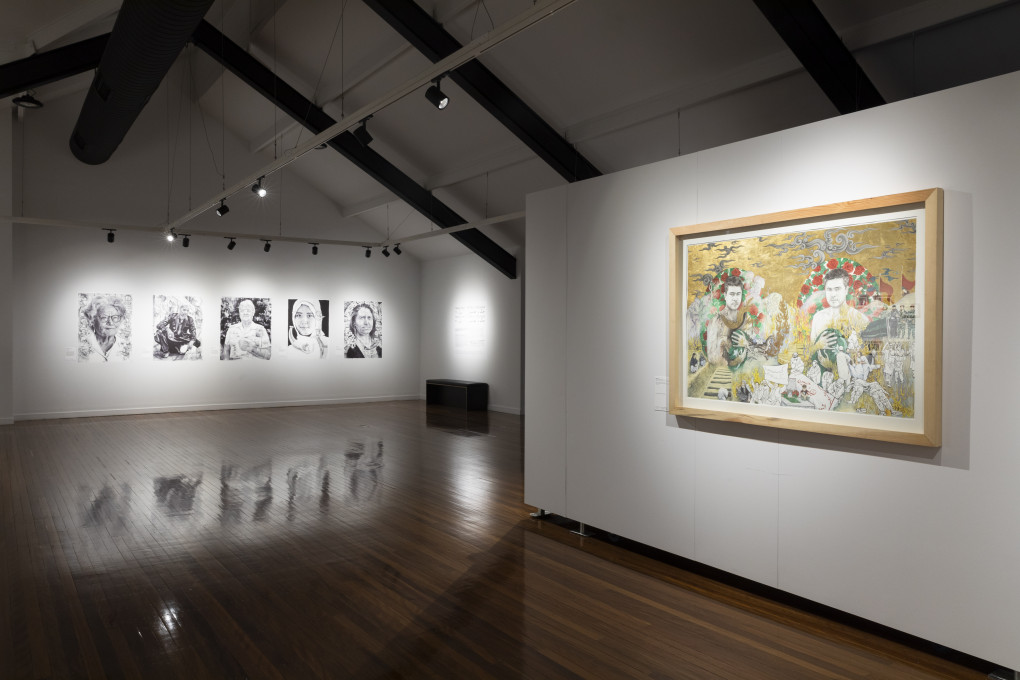
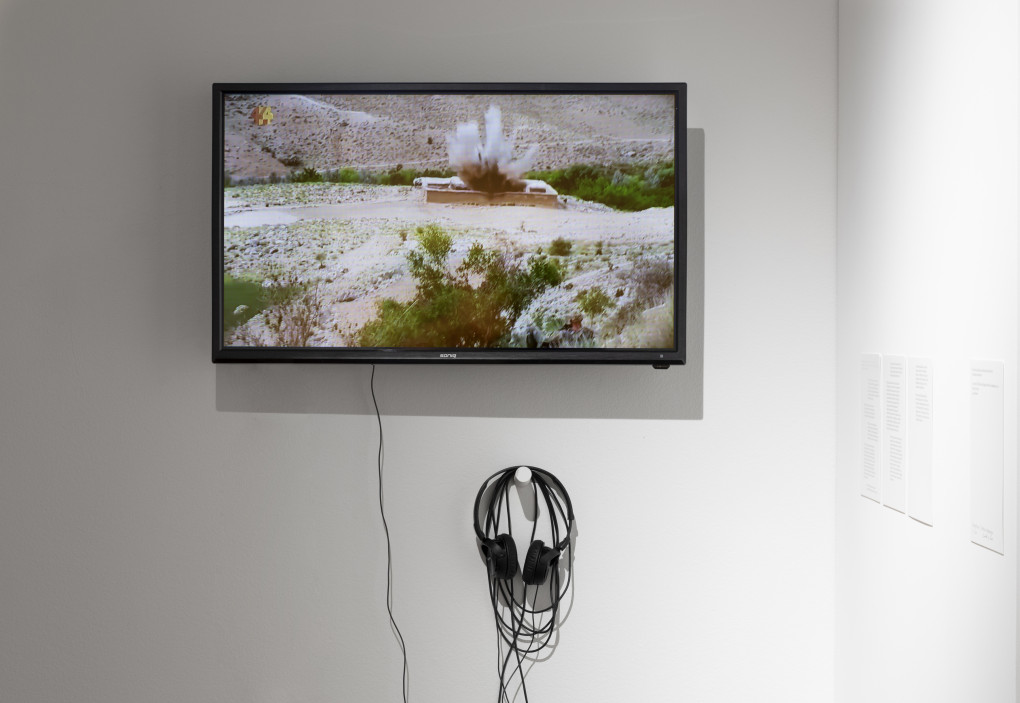
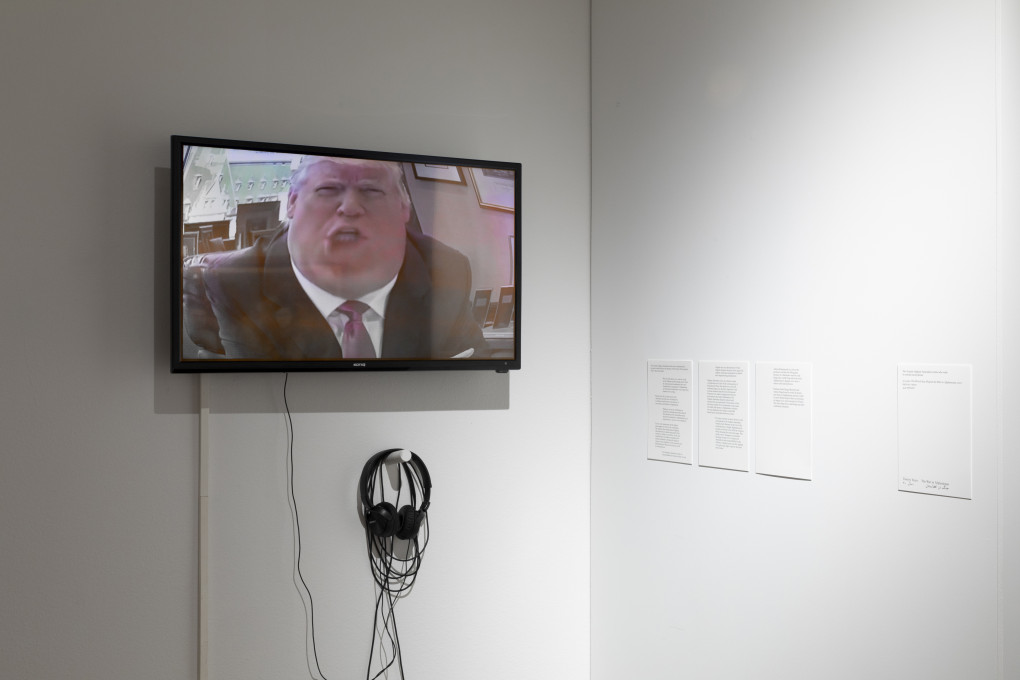
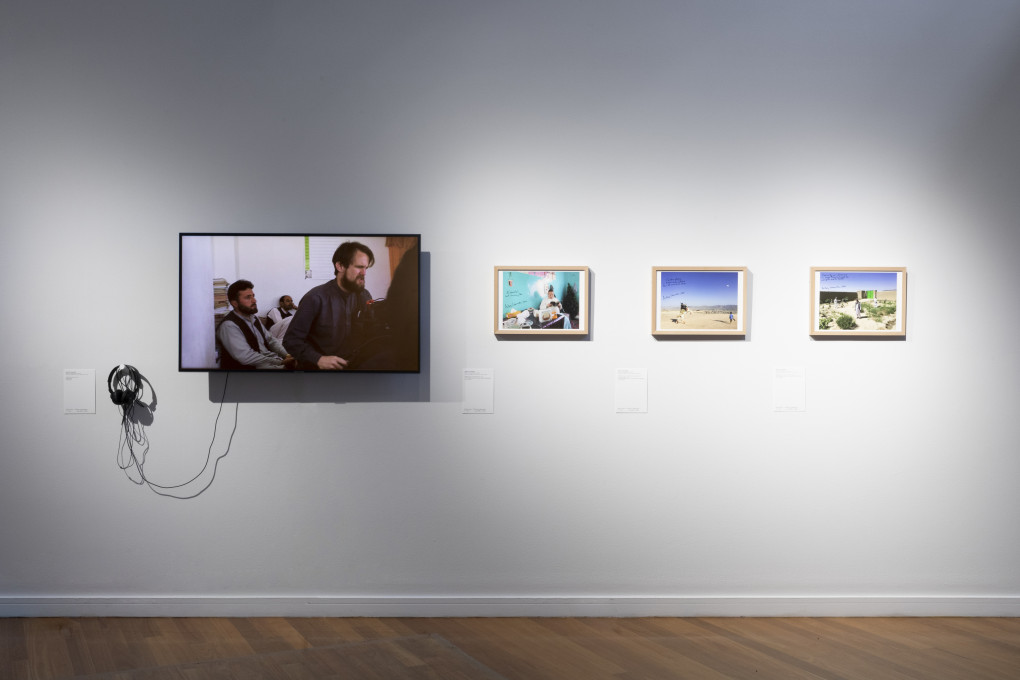
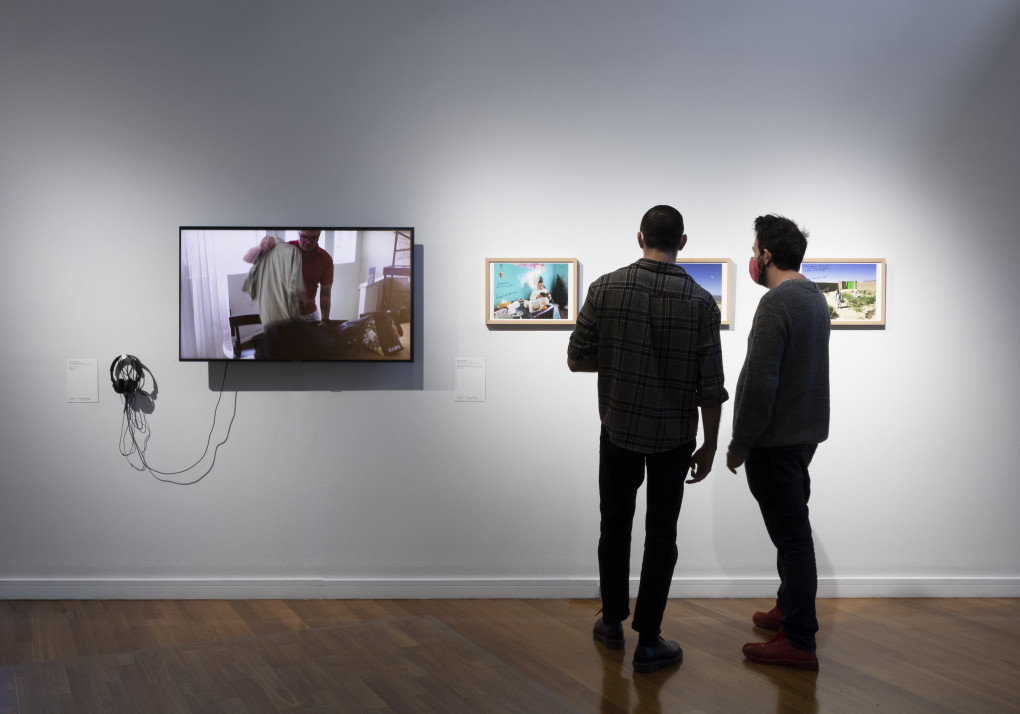
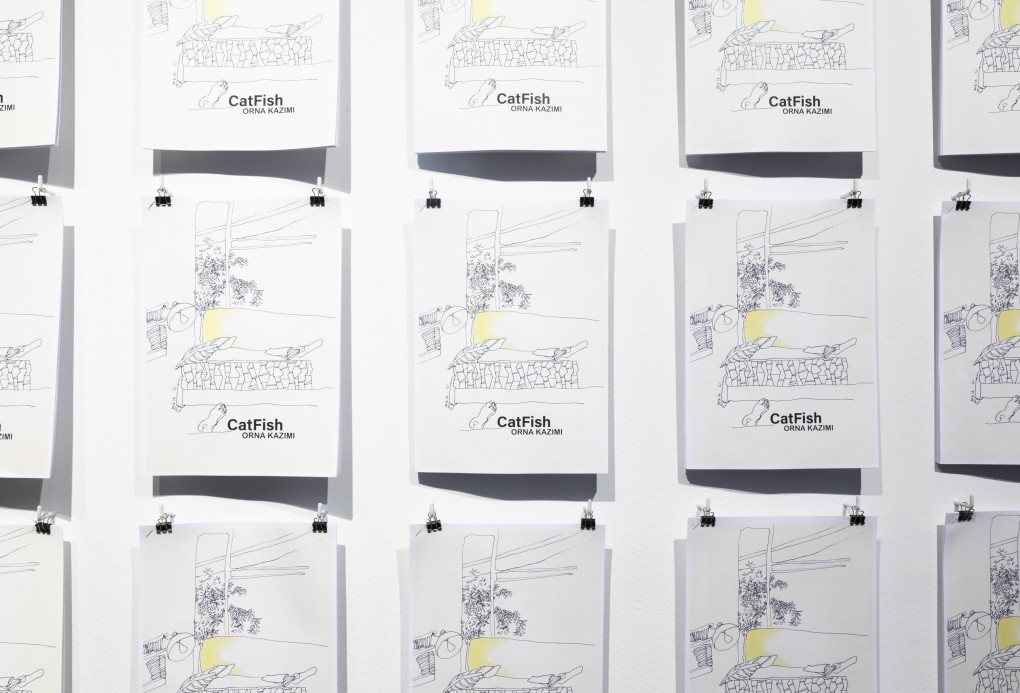
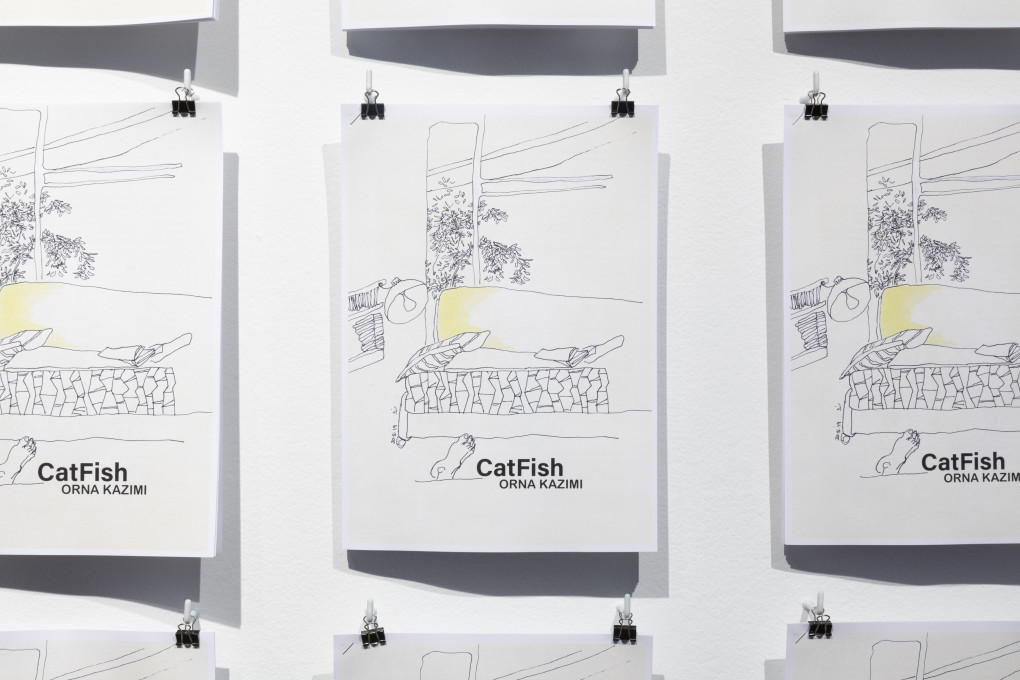
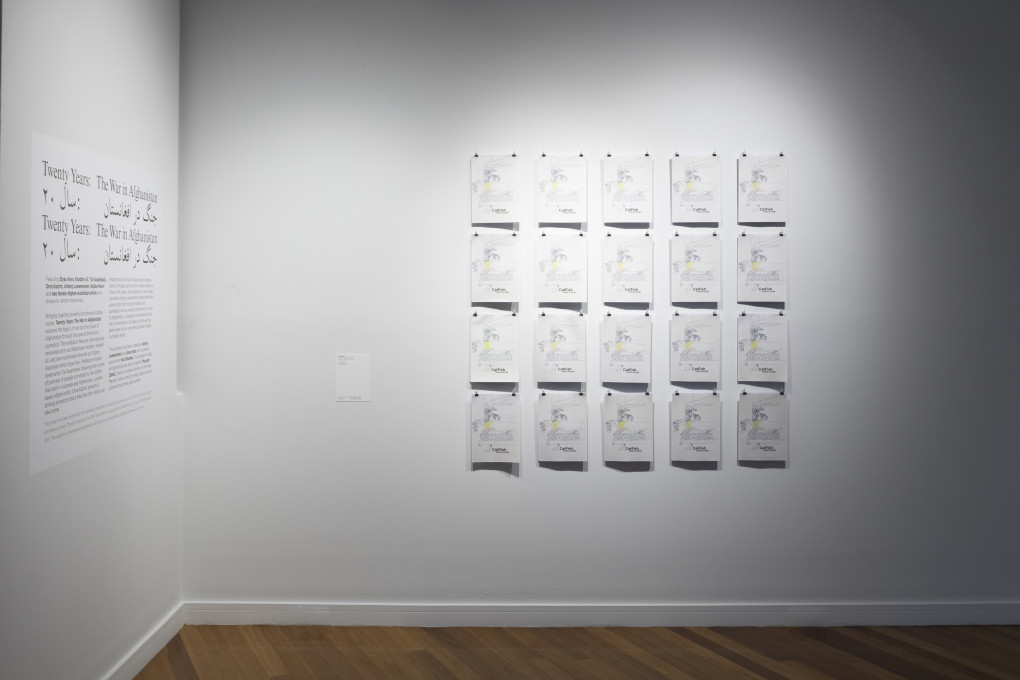
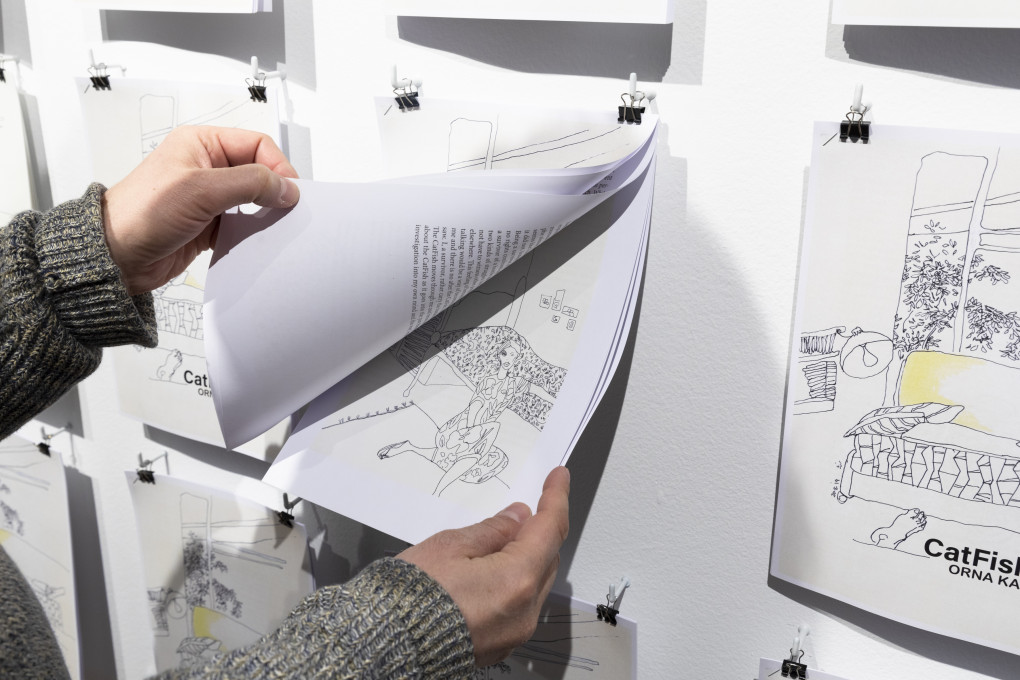
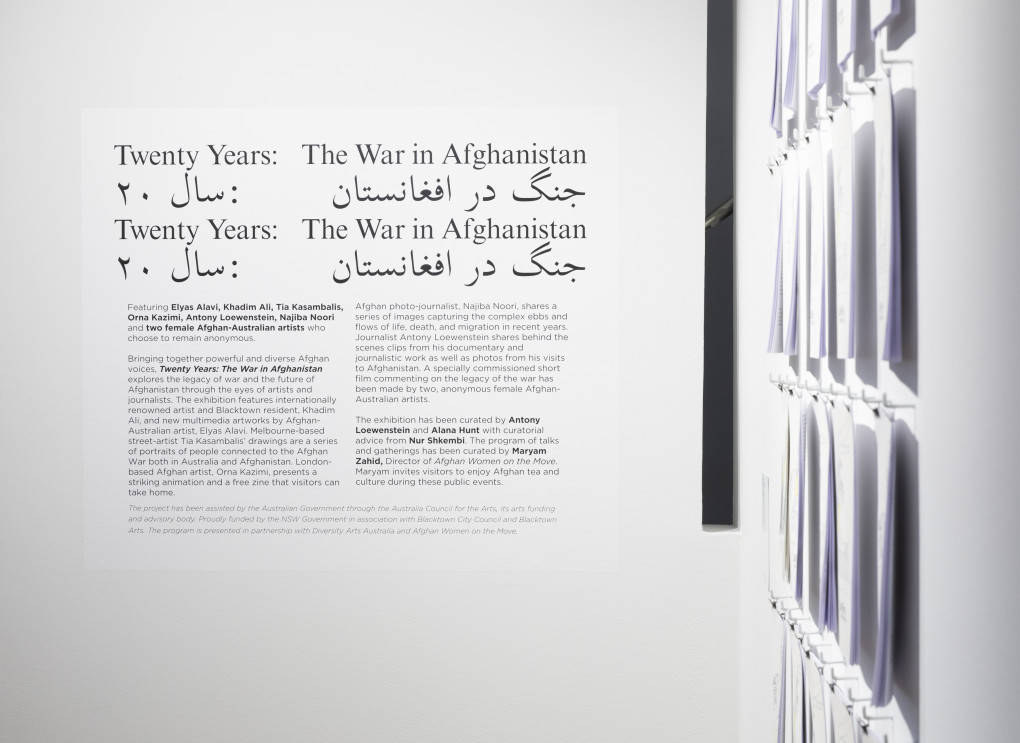
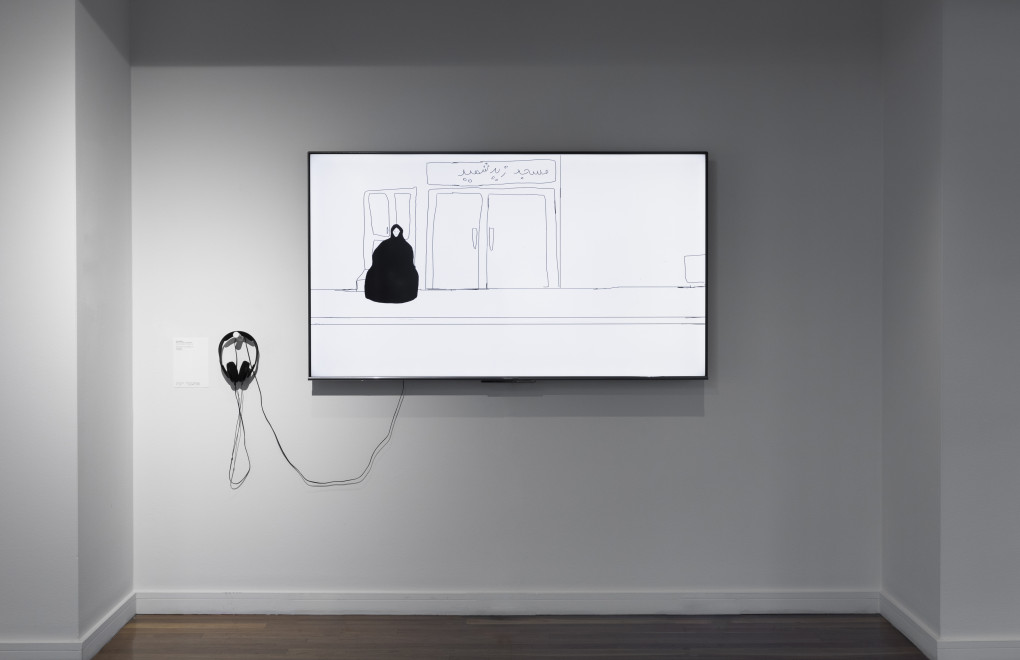
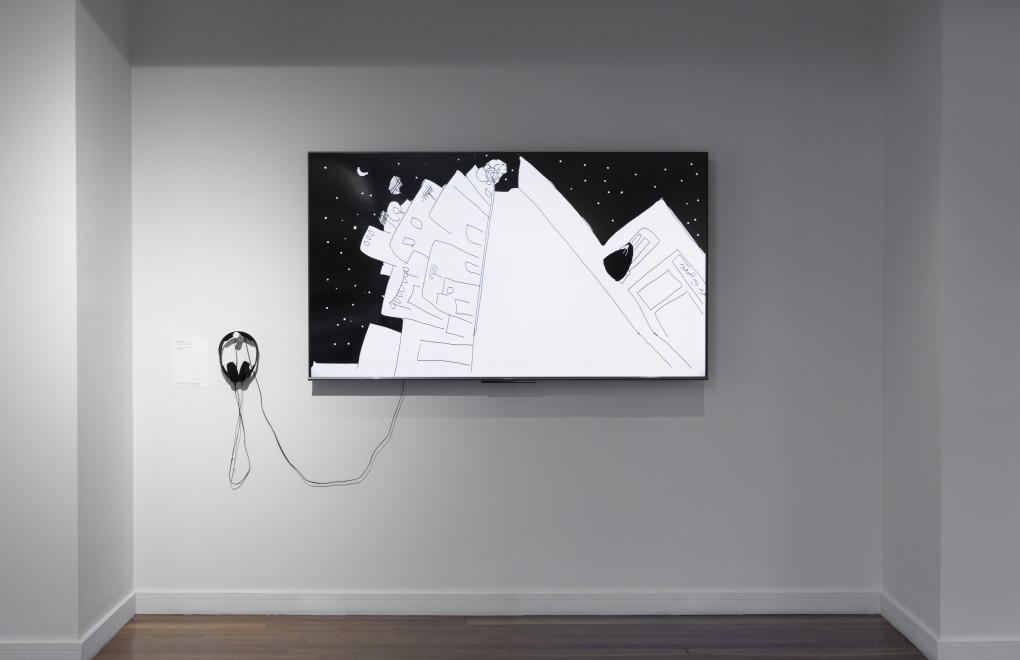
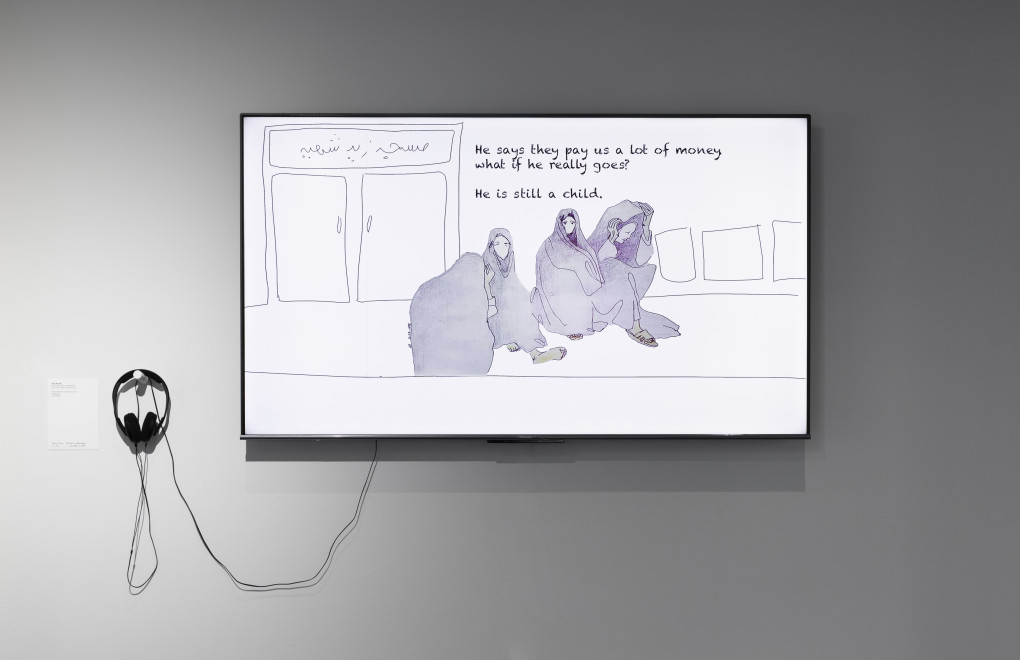
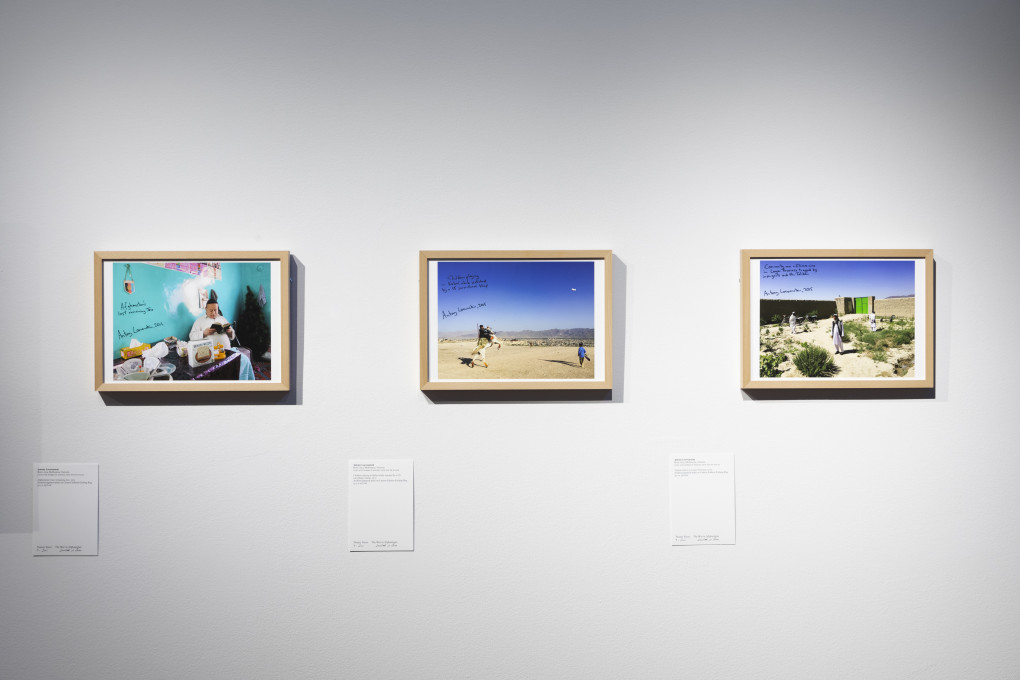
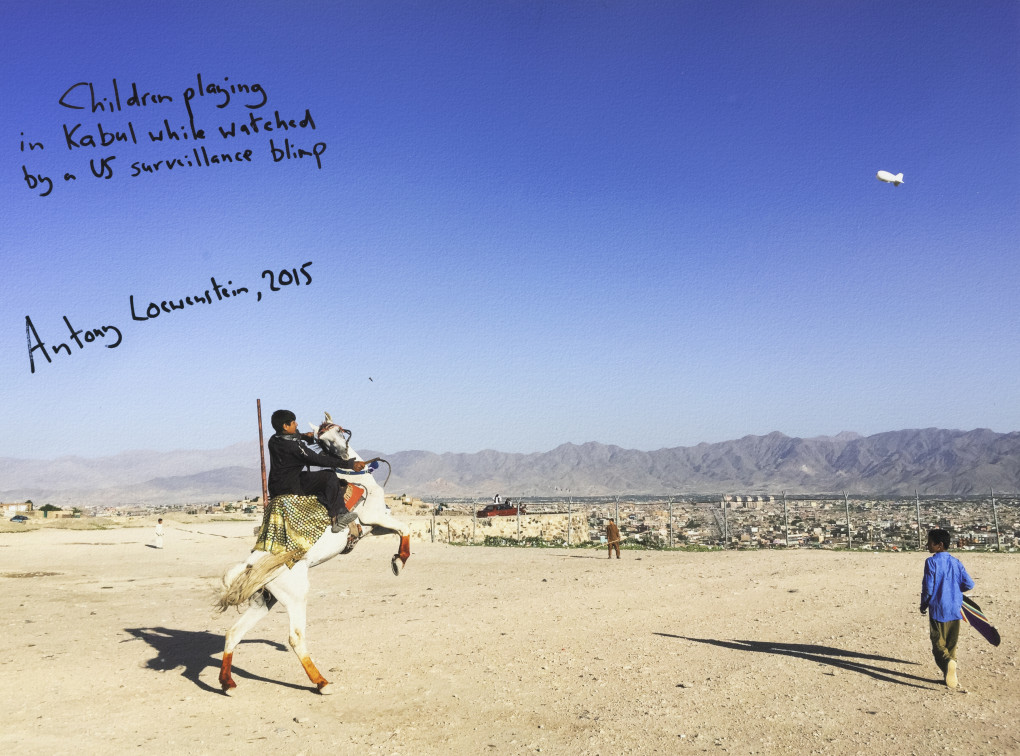
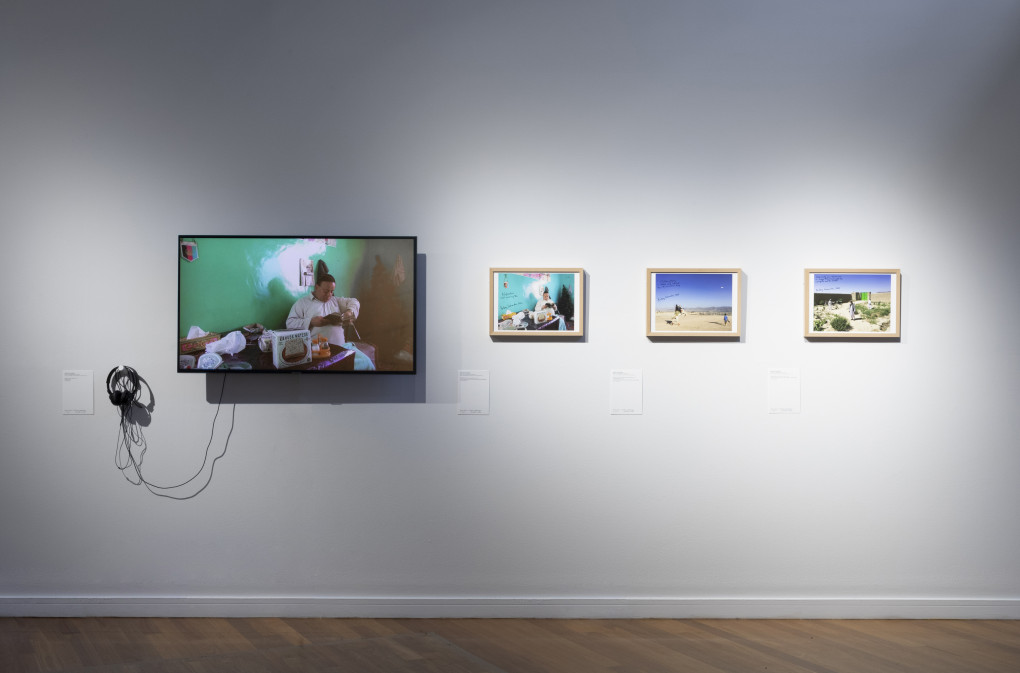
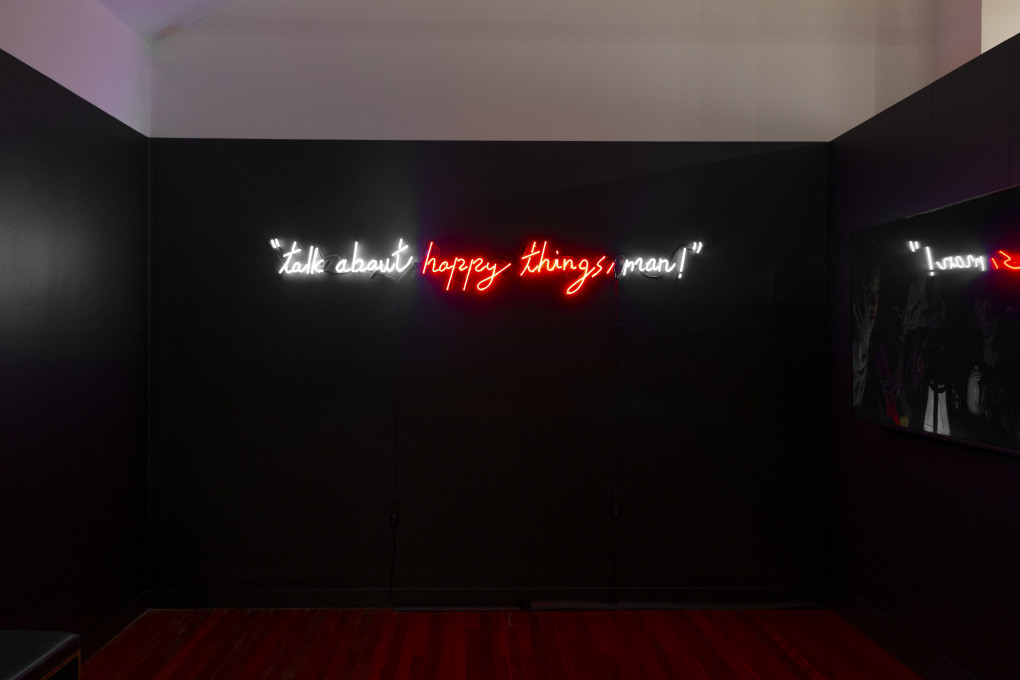
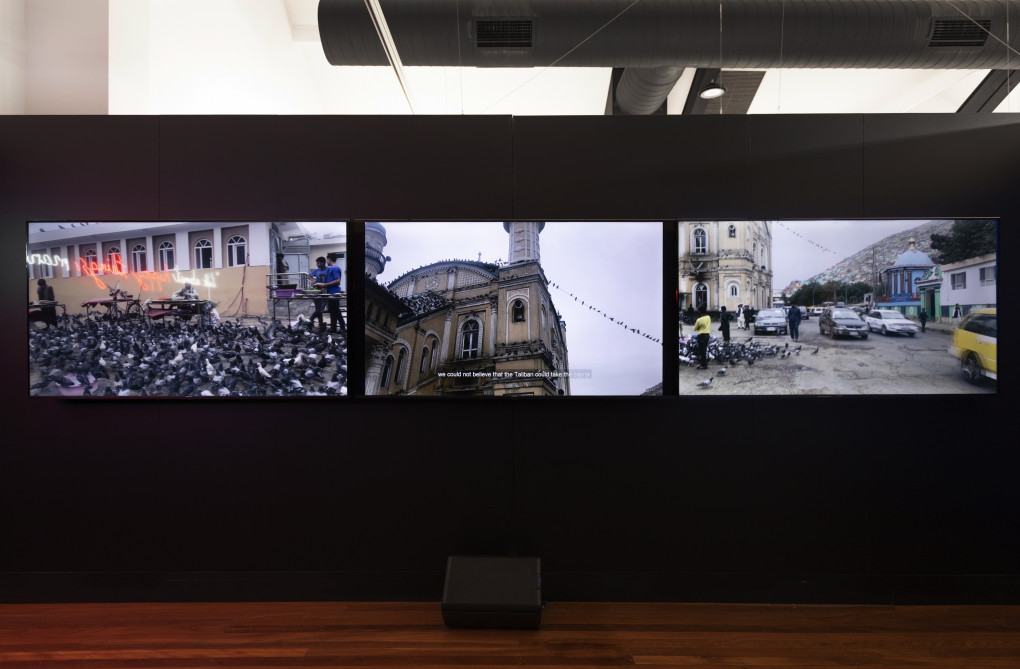
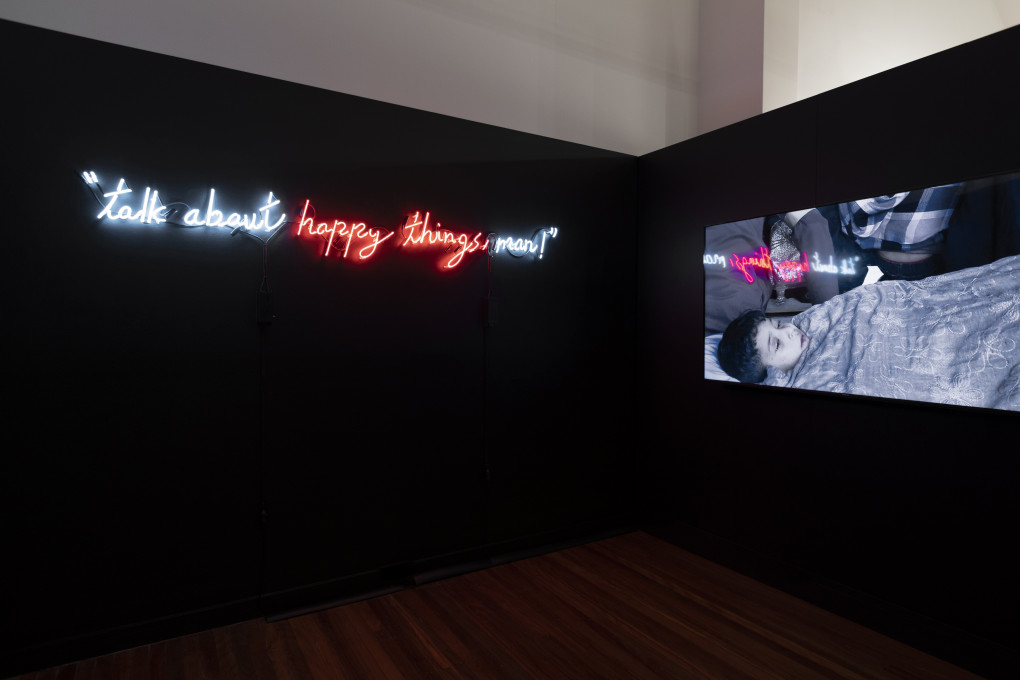
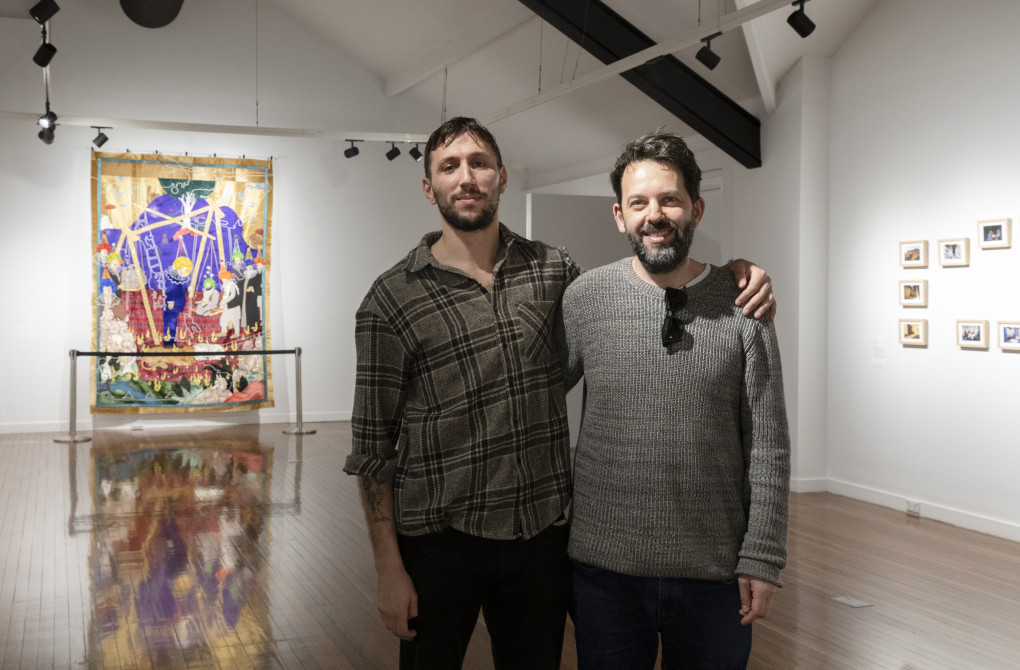
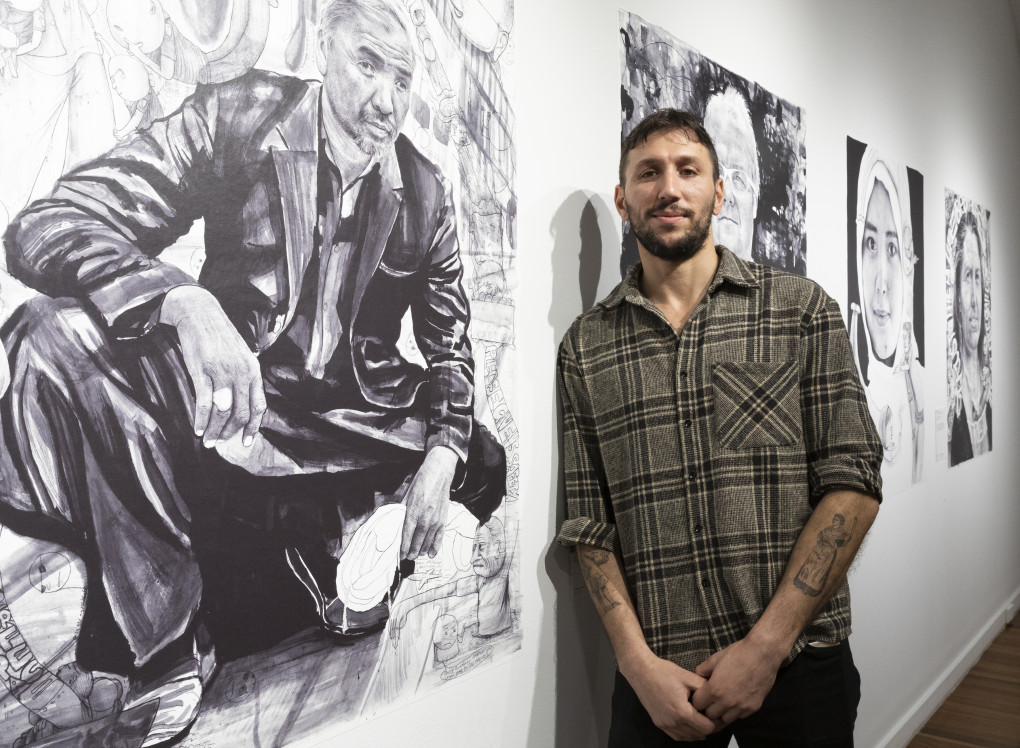
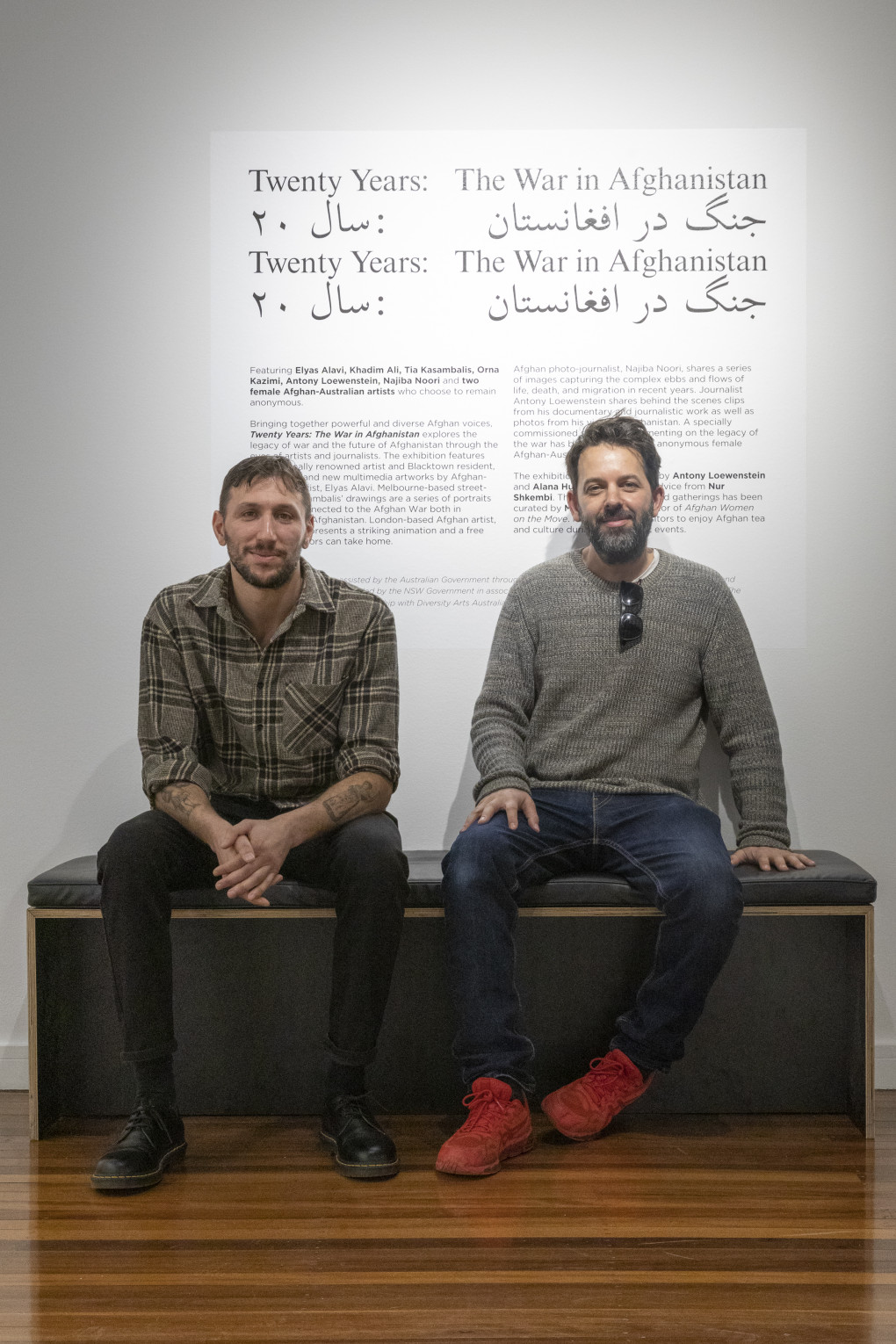
Documentation by Jennifer Leahy.
Contributing Artists
-
Khadim Ali grew up on the Pakistan/Afghanistan border. Bio Works
He’s now based in Blacktown in Sydney, Australia. His parents hoped to one day return to their family lands in Bamiyan, Afghanistan. As a child, Ali was deeply influenced by his grandfather, a Shanamah singer, and by the miniature paintings that illustrated the stories of the Shanamah, a tenth-century epic poem. Ali studied miniature painting at the National College of Arts, Lahore and calligraphy at Tehran University, Iran. The artist’s intricate works encompass imagery from history, politics, literature, poetry and mythology to explore contemporary events such as the civil war in Afghanistan and personal experiences of persecution, displacement and discrimination.
Ali has exhibited nationally and internationally since 2003. Selected solo exhibitions include Transition/Evacuation, ARNDT, Singapore (2015); The Haunted Lotus, Art Gallery of New South Wales, Sydney (2014); Rustam, Rohtas2, Lahore (2009); Rustam, Green Cardamom, London (2007); Qaseeda-e-Rivazi,Chawkandi Art Gallery, Karachi (2005); and Jashn-e-Gul-e-Surkh (The Celebration of Red Tulips), Chawkandi Art Gallery, Karachi (2004).
-
Elyas Alavi is a visual artist and poet based in Adelaide, Australia. Bio Works
Elyas Alavi’s practice is interdisciplinary, bridging elements from poetry to visual arts, from archive to everyday events, with the intention to address issues around displacement, trauma, memory, body and sexual identity. He reflects upon his background as a displaced Hazara (a marginalized ethnic group originally from Afghanistan), and uses his particular experiences and contemplations as an epistemological model for the dislocation of people and collective memories.
Alavi graduated from a Master of Visual Arts at the University of South Australia in 2016 and a Bachelor of Visual Arts (Honours) in 2013, and has exhibited at Mohsen Gallery (Tehran), Firstdraft (Sydney), Robert Kananaj (Toronto), IFA (Kabul), Chapter House Lane (Melbourne), UTS gallery (Sydney) as well as Ace Open, Felt Space, Nexus Arts, CACSA Project Space (all Adelaide). He is the recipient of a 2019 Anne & Gordon Samstag International Visual Arts Scholarship were he studied as a guest scholar at Chelsea College of Arts, University of London in 2019-2020.
-
Tia Kass is a left wing artist and illustrator. Bio Works
Tia Kass is an artist and illustrator working out of Victoria Trades Hall Art Studio in NAARM (Melbourne) and is a member of the Workers Art Collective, a group of left-wing artists creating art and writings for the workers movement. Tia’s artistic style combines realistic figures with comic-like characters to document, reflect and help share the stories of communities facing marginalisation and oppression, in all its forms. He’s published work for The Saturday Paper, SBS, Overland Literary Journal, The Lifted Brow and for the Asylum Seeker Resource Centre. His SBS series on the Rohingya community in Melbourne was nominated for a 2018 Walkley award and his collaborative story on migrant workers in the food industry, published in The Saturday Paper, won two Quill awards in 2021. For the past five years, Tia’s been involved in antifascist organising through the Campaign Against Racism and Fascism (CARF). In his down time, he loves training in Brazilian jiu-jitsu and eating lollies.
-
Orna Kazimi is an interdisciplinary artist based in London. Bio Works
Orna’s work and research explore personal encounters of migration in relation to collective memories of displacement through drawings, installation and writing. Her works have been shown at sight and sound workshop at Tate Exchange- Tate Modern- London 2018, overprint at Centre de la Gravure et de l’image imprimée museum-Belgium 2018, Art Amongst War: Visual Culture in Afghanistan-TCNJ Art Gallery- New Jersey 2014, 4th Afghan Contemporary Art Prize Exhibition- Queen’s Palace- Afghanistan 2013. She was awarded the Caspian Arts Foundation Scholarship (2016) and studied at the Central Saint Martins in London (2018).
-
Antony Loewenstein is an independent journalist, author and film-maker Bio Works
Antony has written for The New York Times, The Guardian, the BBC, The Washington Post, The Nation, Huffington Post, Haaretz and many others.
His latest book is Pills, Powder and Smoke: Inside the Bloody War on Drugs. He’s the author of Disaster Capitalism: Making a Killing Out of Catastrophe; the writer/co-producer of the associated documentary, Disaster Capitalism; and co-creator of Al Jazeera English films on the opioid drug tramadol, West Africa’s Opioid Crisis, and threats to free speech and liberty during the pandemic, Under the Cover of Covid. His other best-selling books include My Israel Question, The Blogging Revolution, and Profits of Doom, and he’s the co-editor of the books Left Turn and After Zionism, and is a contributor to For God’s Sake. His next book, out in 2023, is on how Israel’s occupation has gone global and he’s currently developing a number of documentary films.
Loewenstein has visited Afghanistan twice, in 2012 and 2015, to investigate the impact of the war on Afghan civilians, war profiteers and the country’s fledging mining industry. During his visits, he researched disaster capitalism for a book and film.Loewenstein visited Afghanistan in 2012 and 2015 while researching his book and film, Disaster Capitalism. The following photos are a selection from these trips, curated and edited by photographer Peter Morgan.
-
Najiba Noori was born in 1995 in Bamiyan, Afghanistan. Bio Works
Noori’s family emigrated to Iran to escape from the ongoing civil war in the country. She started school in Iran, and after her family returned to Afghanistan in 2004 she continued her education at a high school in Bamyan. Noori began working for media organizations as a volunteer when she was just 15. Alongside her work she has practiced photography and videography since 2015. She has studied photography and filmmaking in Kabul, taking courses provided by the British Council and Sahar Speaks. She has made documentary films and photo story for various organizations and agencies, including the AFP, Huffington Post, MSF, FMIC, NRC and UN in Afghanistan. She joined Agence France-Presse (AFP) as video journalist in August 2019, and in August 2021 she left her country when the Taliban took power in Afghanistan. (Listen to audio below)
Videos
Shaped the War in Afghanistan Dec. 2021 (Details)
We commissioned female Afghan-Australian artists to make a short film on the themes of the Twenty Years project. This is their statement:
“The fall of Kabul in 2021 was the result of the Taliban forcibly taking power while the international community, who once branded their occupation of Afghanistan as ‘liberation’, isolated the very people they claimed to be saving.
“Swept up by the 24-hour news cycle, Australia rode the wave of distraction to distance itself from its own history of war crimes and failures in Afghanistan.
“Failing to act as the watchdogs on democracy, mainstream media aided in this distraction. The Australian media used the devastation in Afghanistan as an opportunity to erase its own complicity.
“In 2001, the mainstream media helped gain support for the war by centralising the opinions that dehumanised Afghans, discredited their culture and depicted the country as a threat to the West. As the war morphed into an endless occupation, the media continued its backing by failing to report on the complexity of the situation and diminishing the Western-led violence with no consequences.
“As Australia continues to take no accountability for its part in the 20-year Afghan war, the alienation felt by the Afghan diaspora deepens. Once again, the Afghan-Australian population is pushed into unquestioning assimilation.
“Afghan-Australian voices are afraid to stand on platforms out of fear of the consequences of being heard. Those who spoke out, even with restrained anger, are deemed ‘ungrateful,’ and in some instances had their lives threatened. Protestors are asked to applaud the Western governments that failed Afghanistan. The Afghan-Australian diaspora polices itself, worried that any expression of frustration or hurt will cause trouble for its community, create issues for family still unsafe in Afghanistan, or hinder the visa application for refugees unlawfully locked-up in Australian detention centres.
“For these reasons, we have chosen to stay anonymous as two Afghan-Australian female artists. Because as the rest of the world chooses to forget Afghanistan, its people are forced to live with the violence while silencing their hurt and anger. This work is not to champion a particular ideology or power; it’s a request for Australia to take responsibility for the violence it helped create and for Afghans to be given the right to grieve their loss and trauma.”
Press
- The Saturday Paper (Oct. 2021) PDF
- ABC Radio National (Oct. 2021)
- The Guardian (Oct. 2021)
- SBS Radio Dari with Elyas Alavi (Oct. 2021)
- SBS Radio Dari with Taqi Khan (Oct. 2021)
- UTS Central News (Oct. 2021)
- RRR radio interview with Antony Loewenstein (Oct. 2021)
- The Guardian (Aug. 2022)
- ABC Radio National's The Art Show (Aug. 2022)
